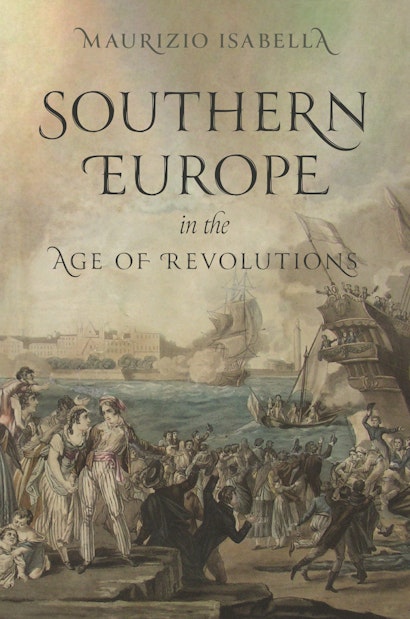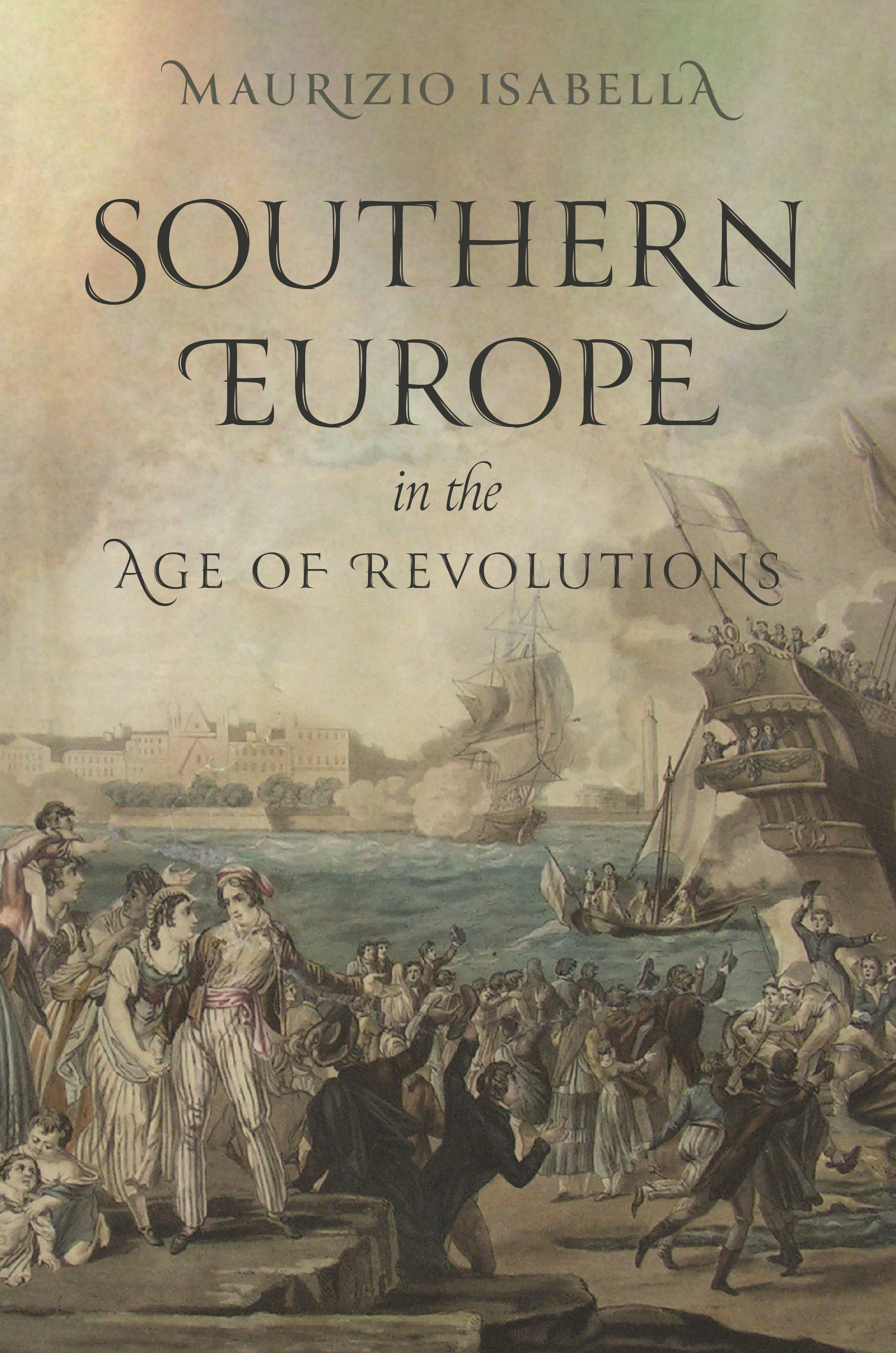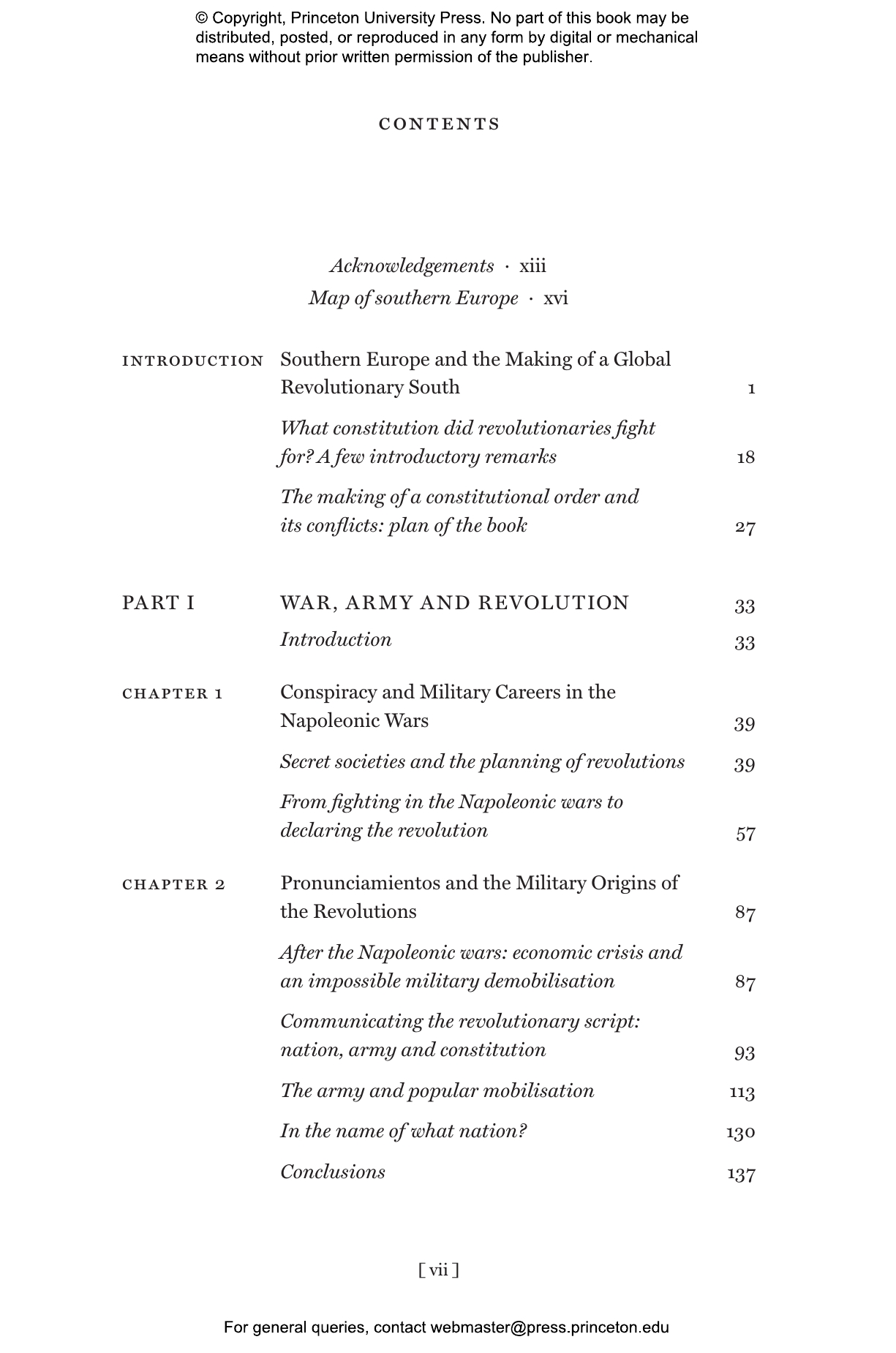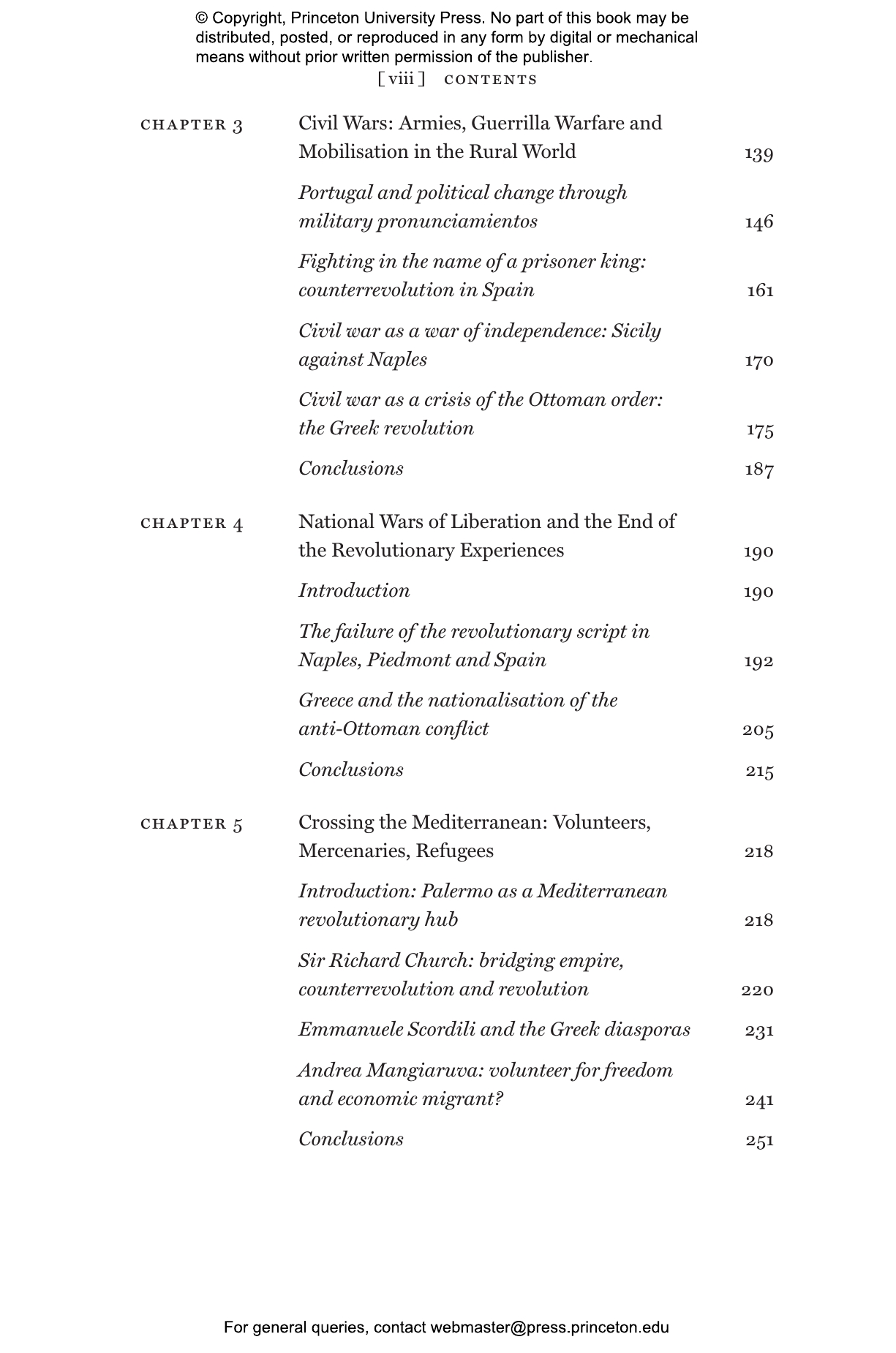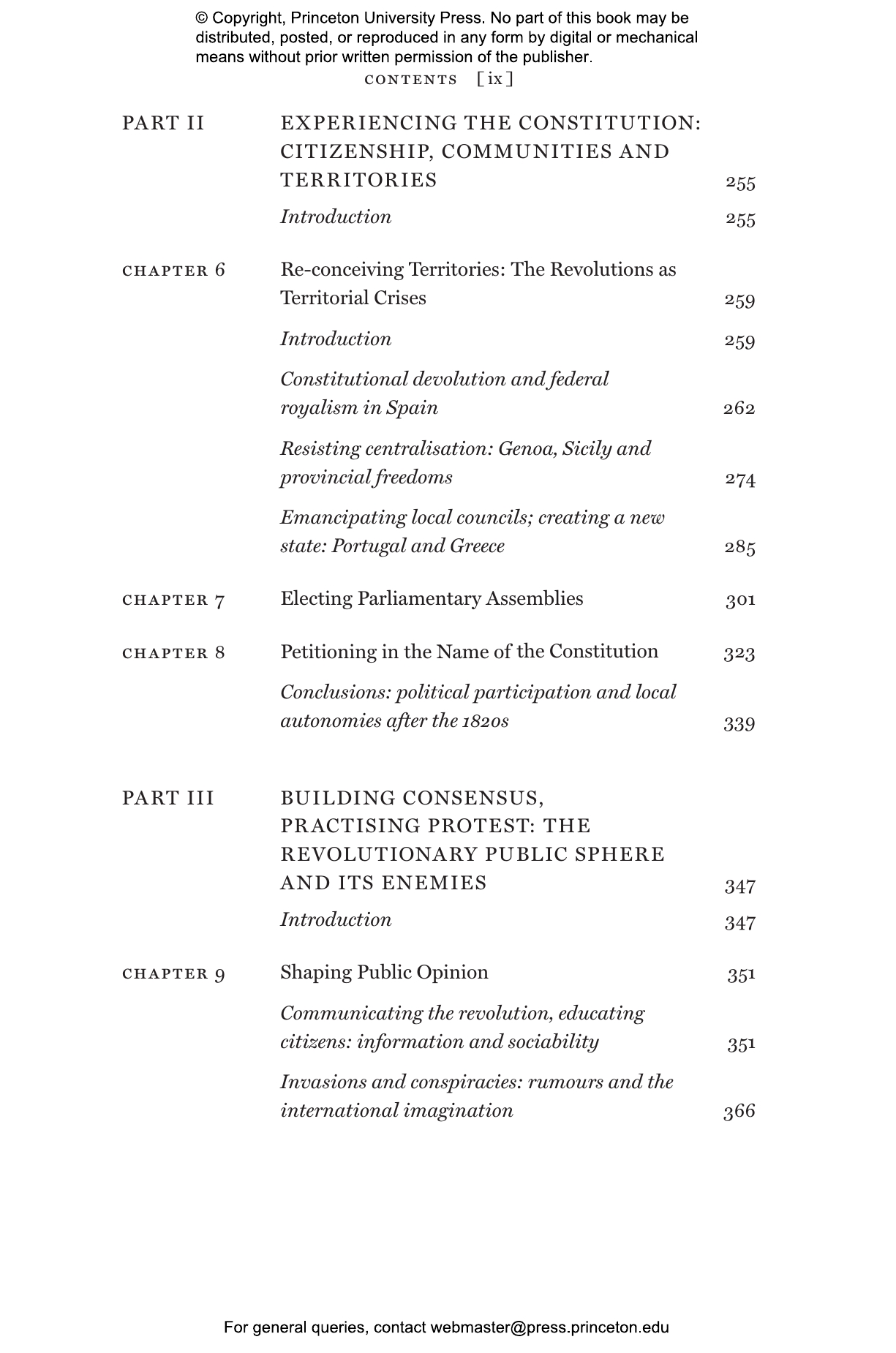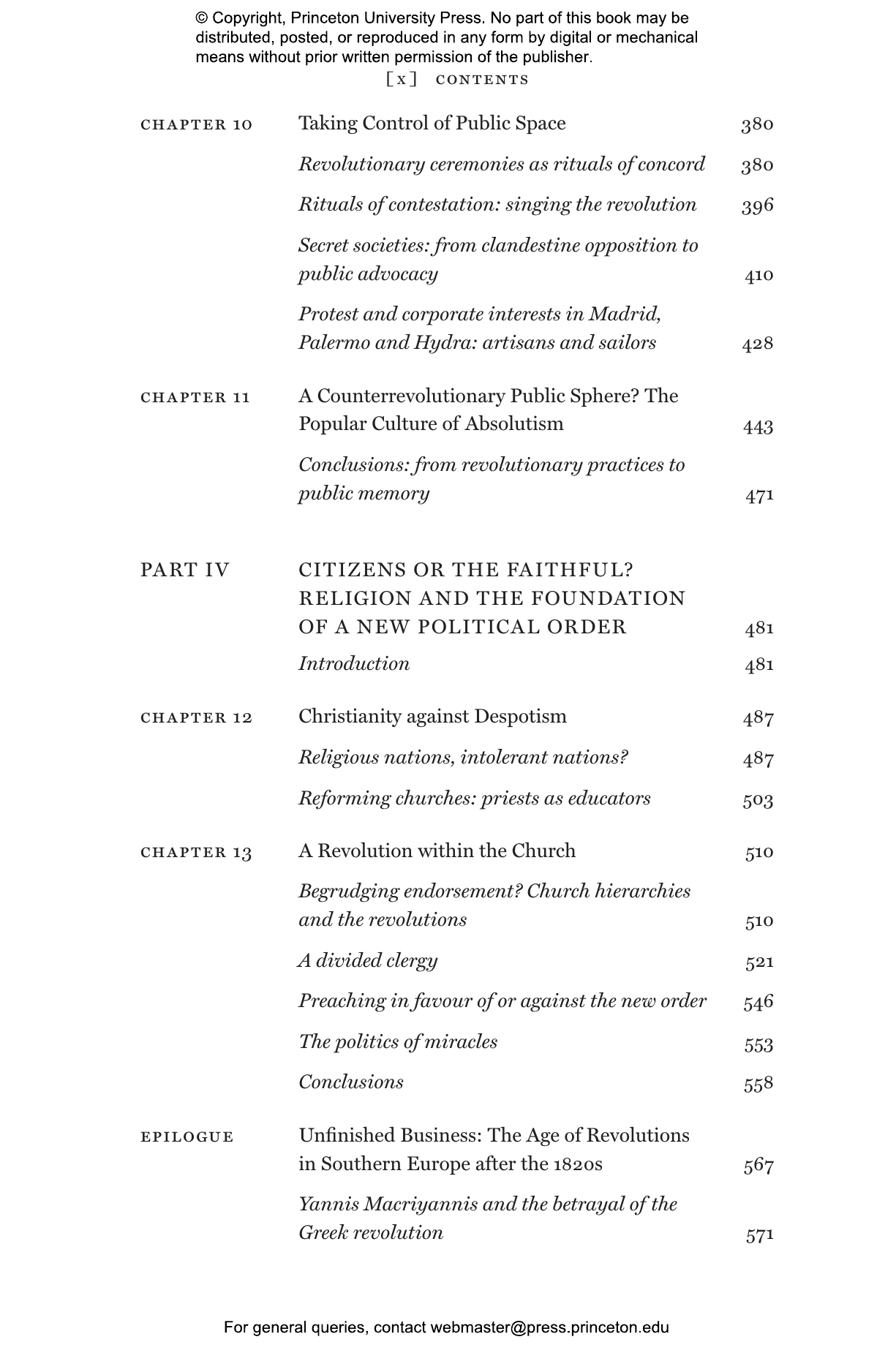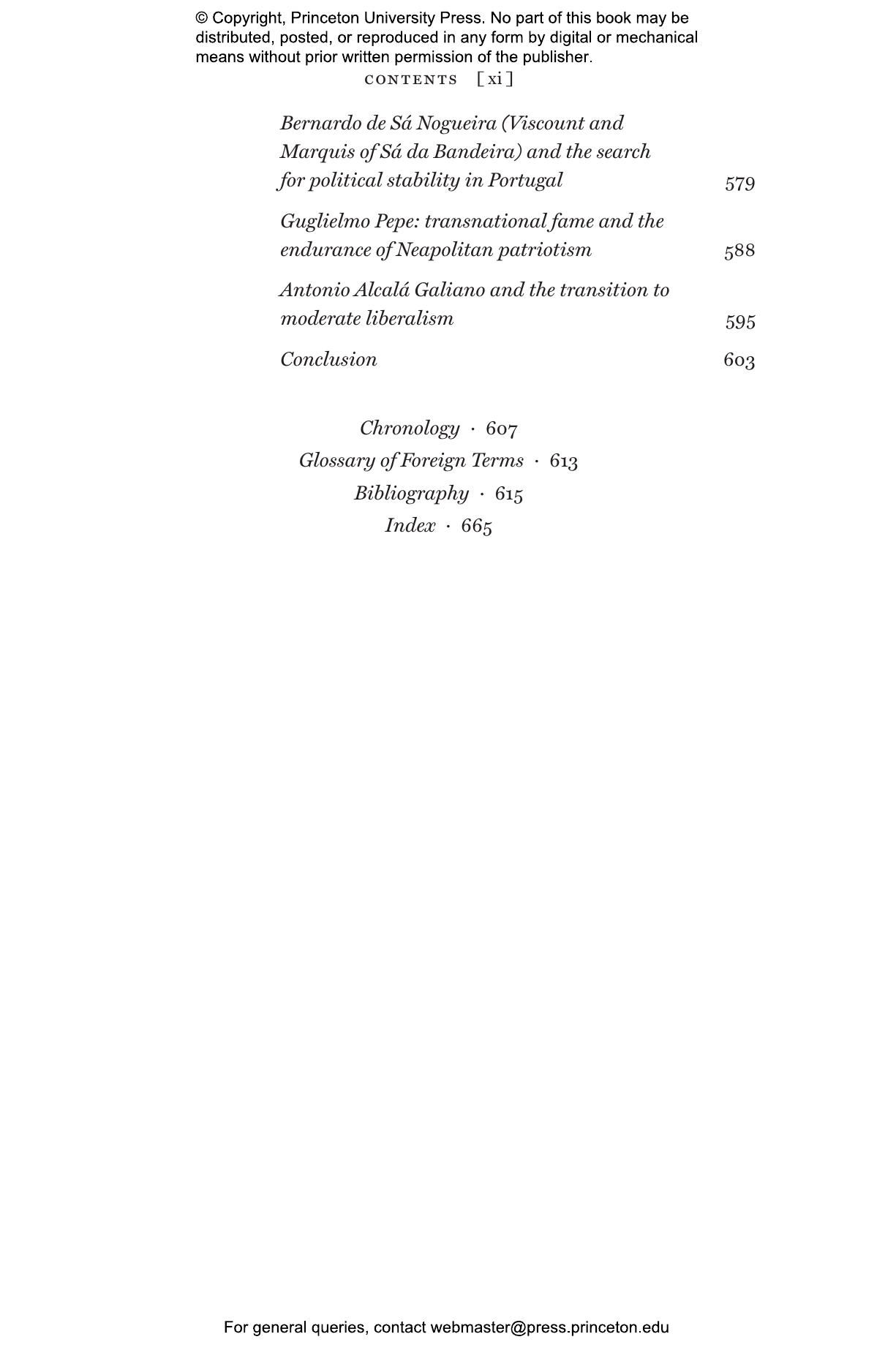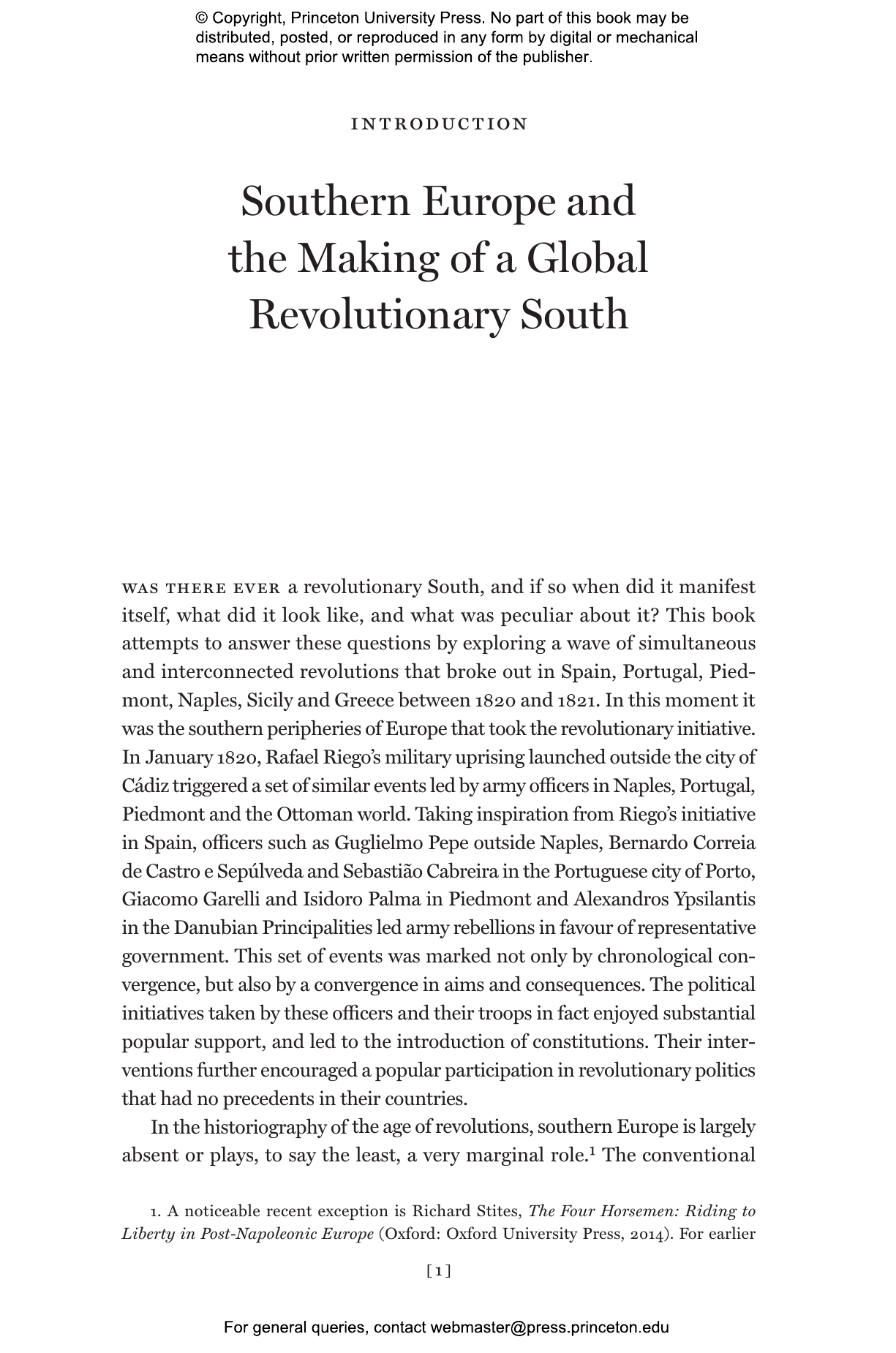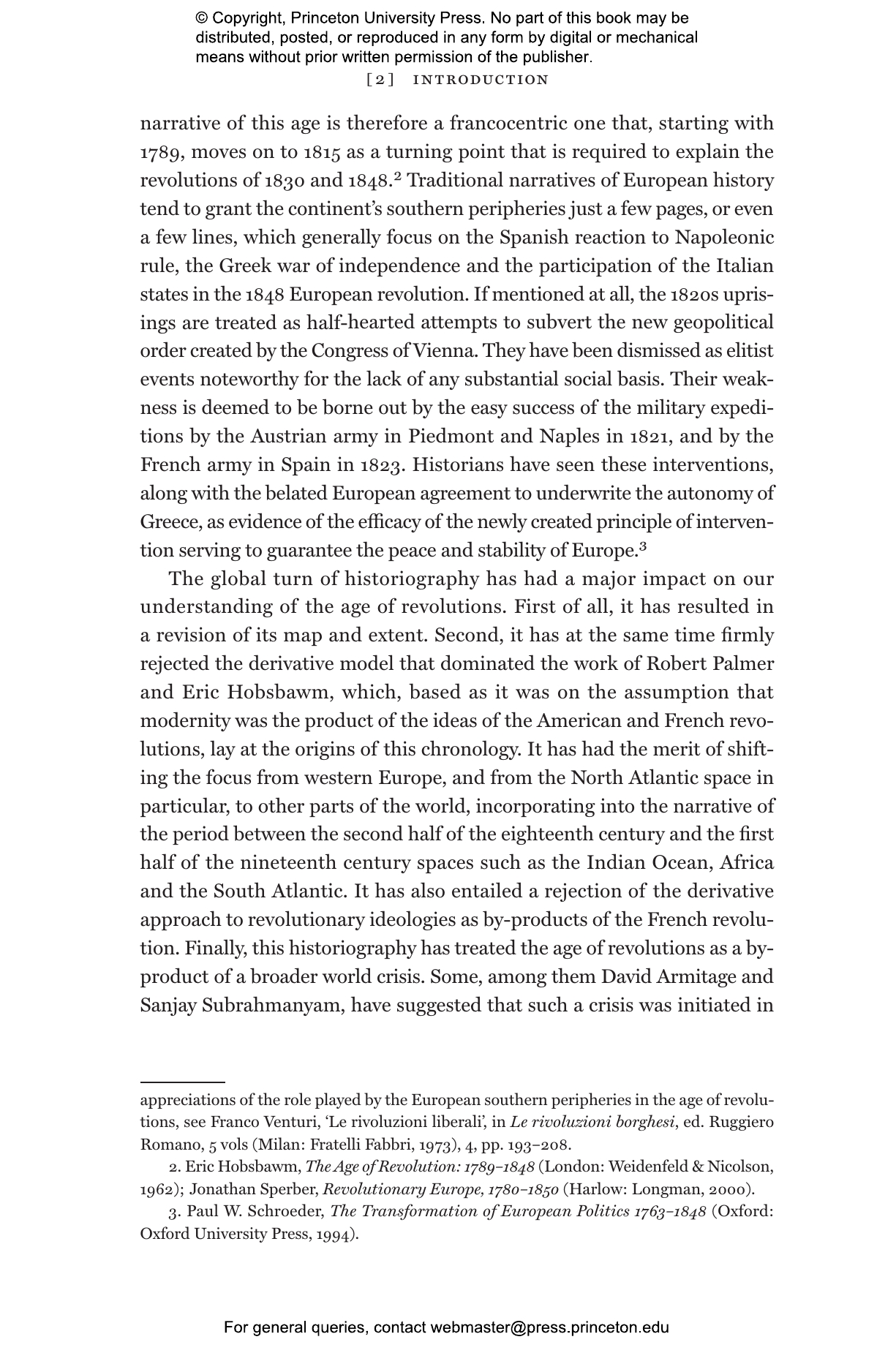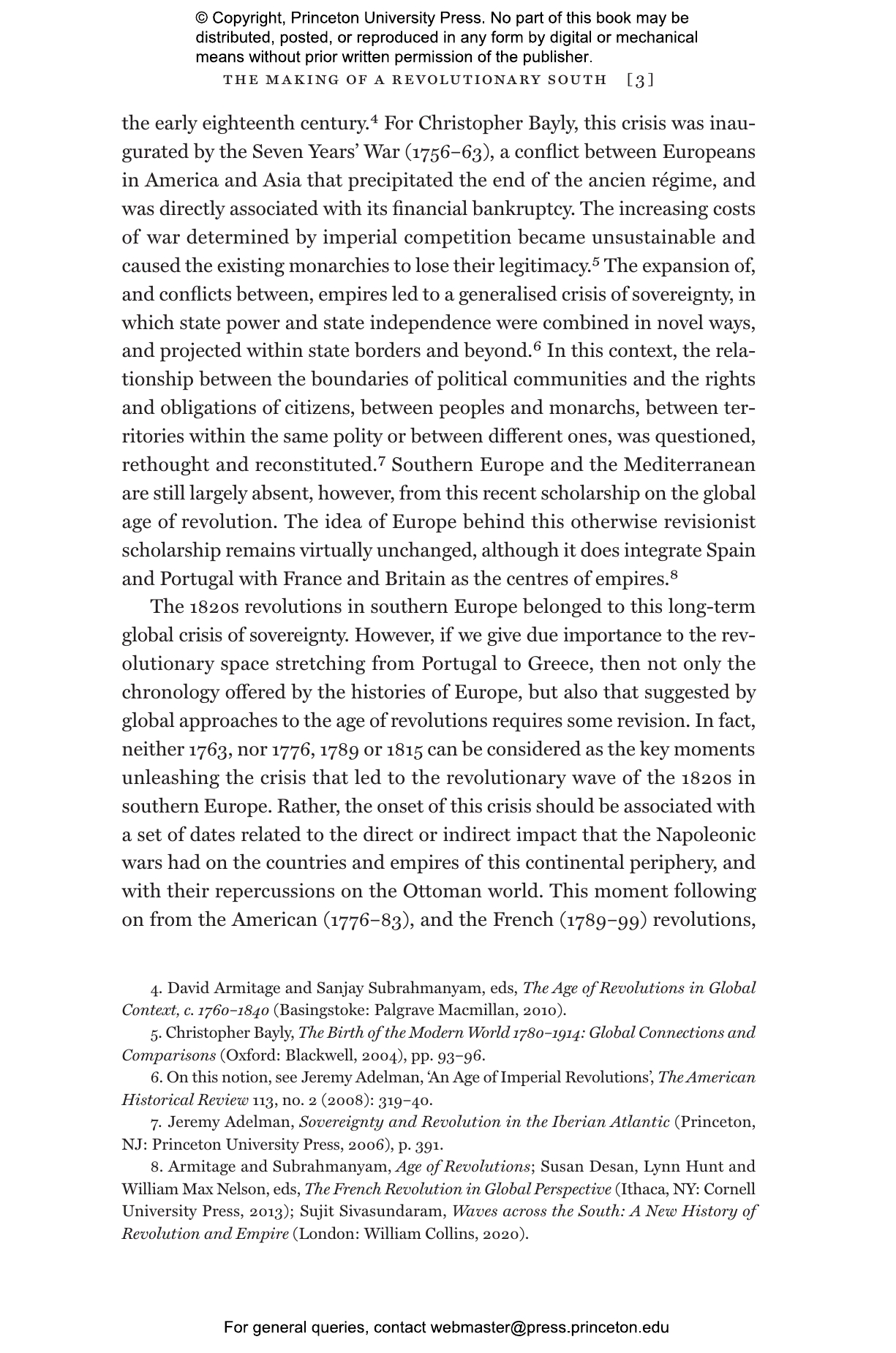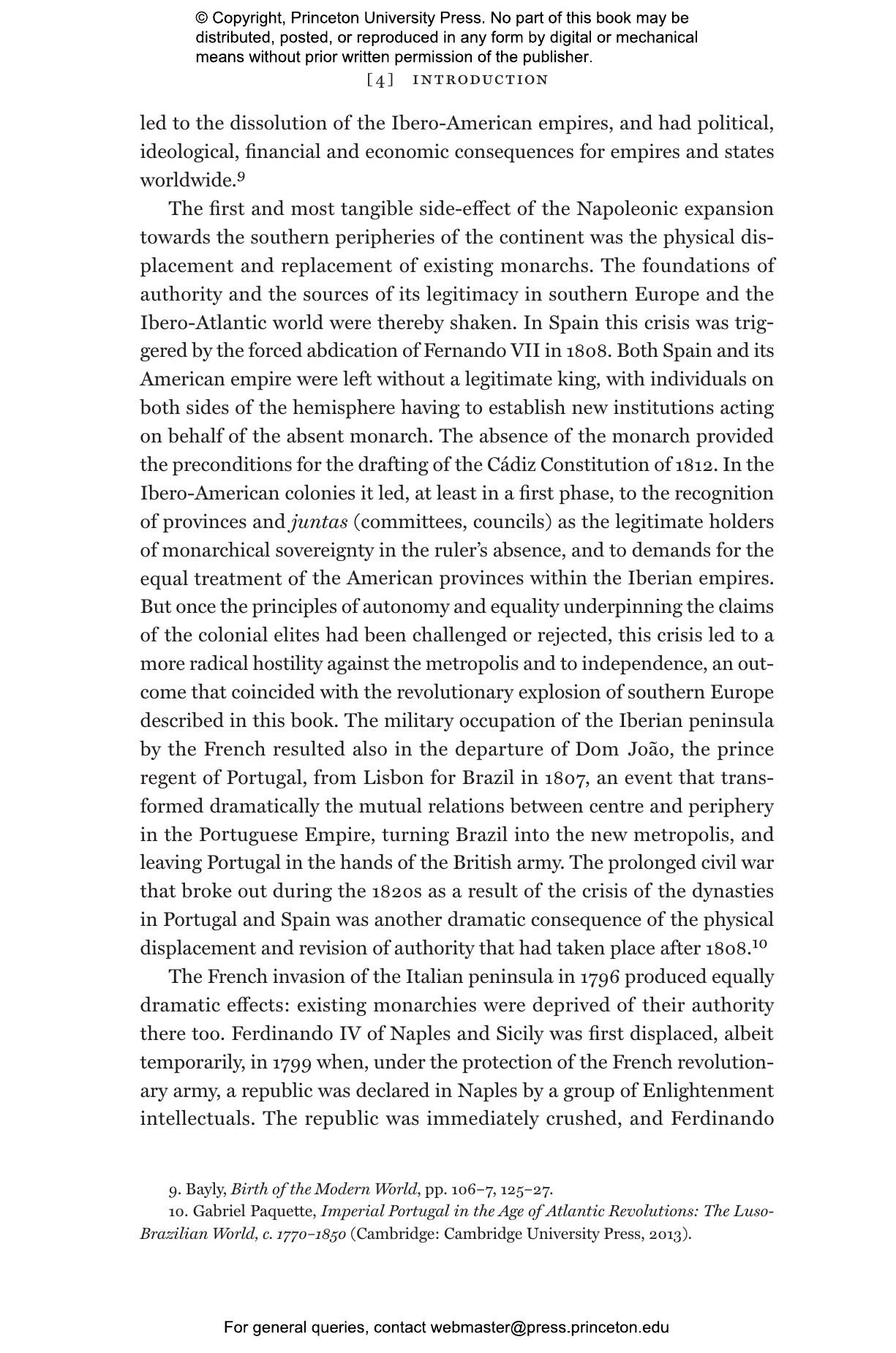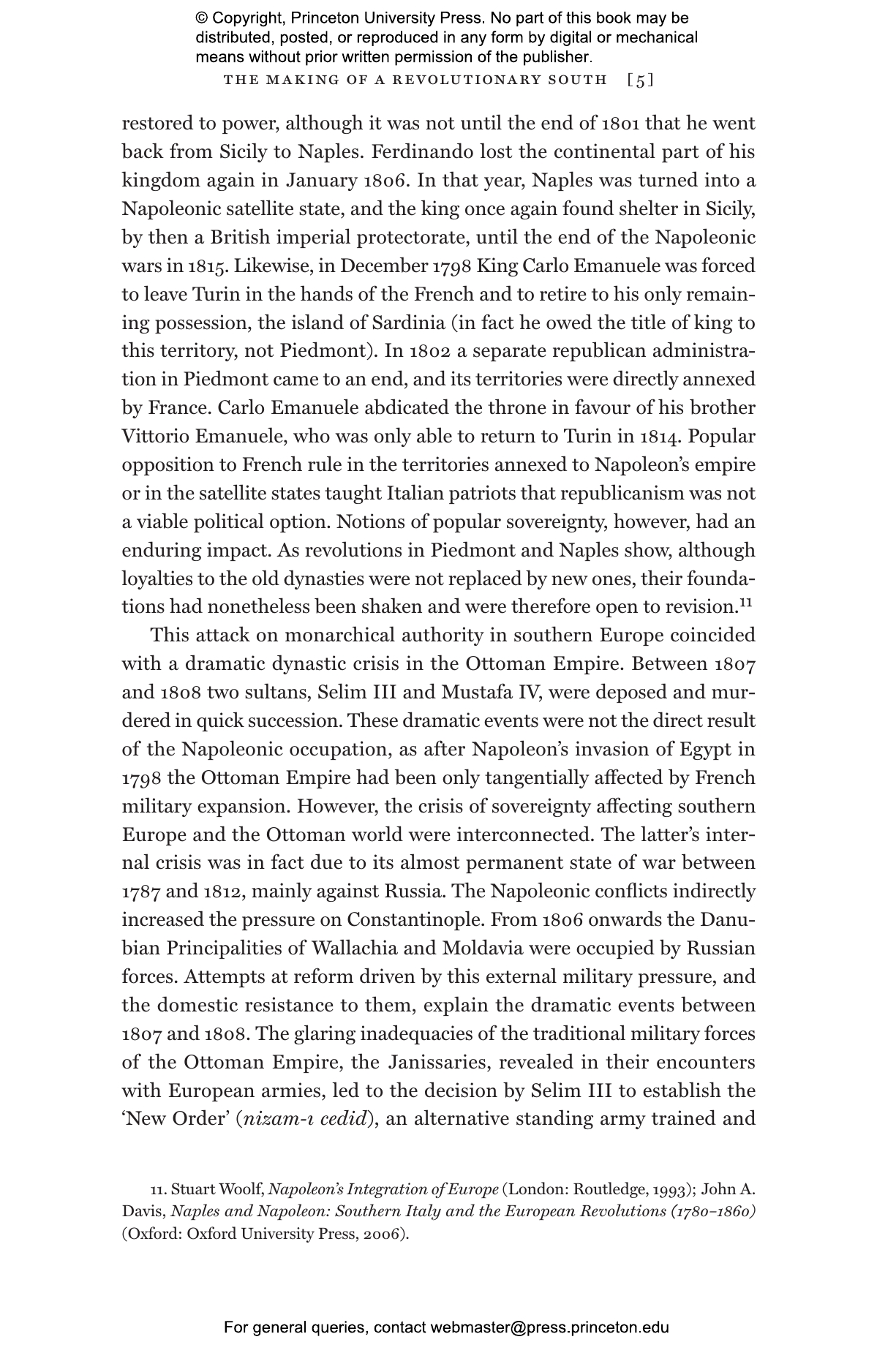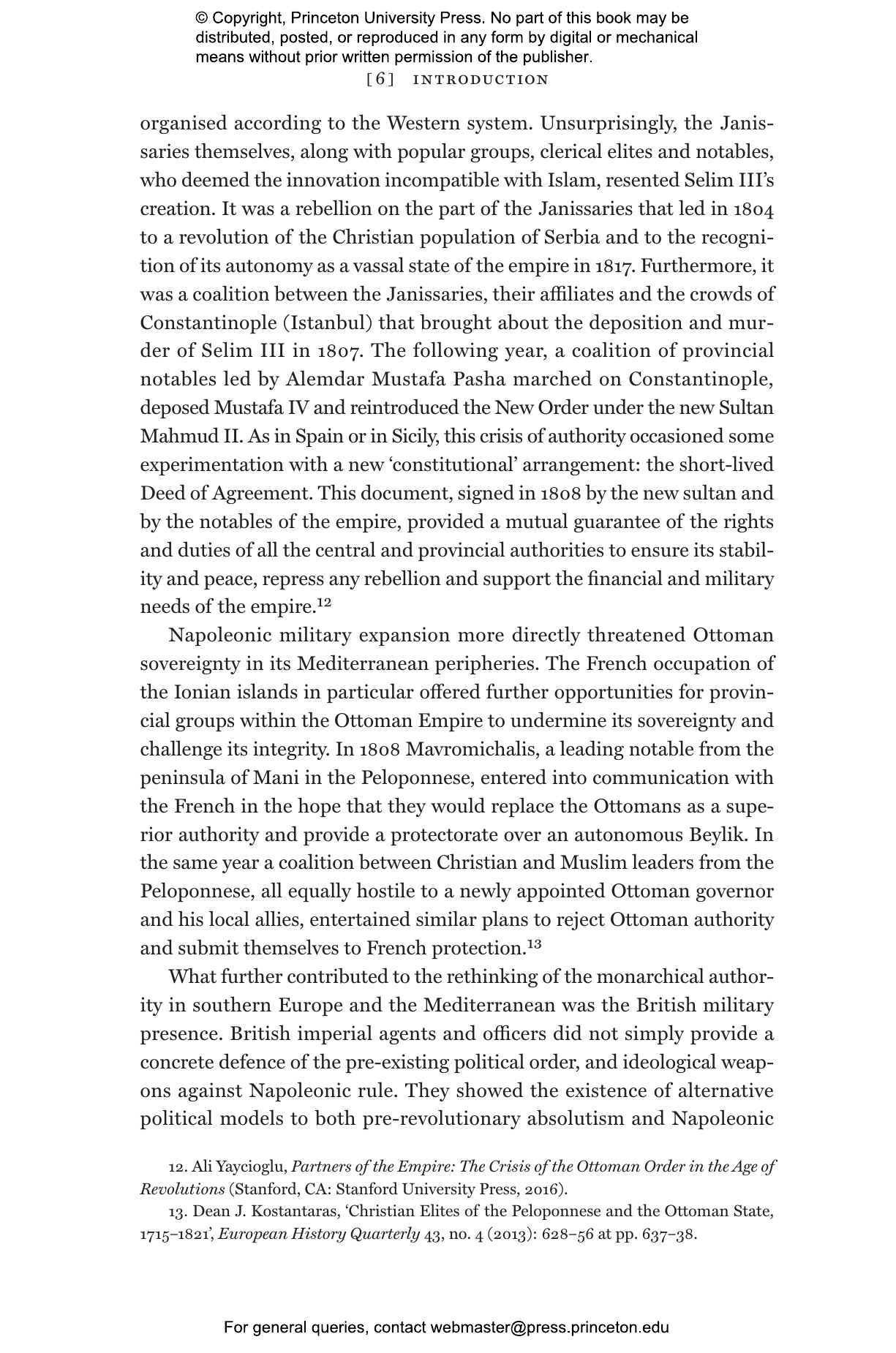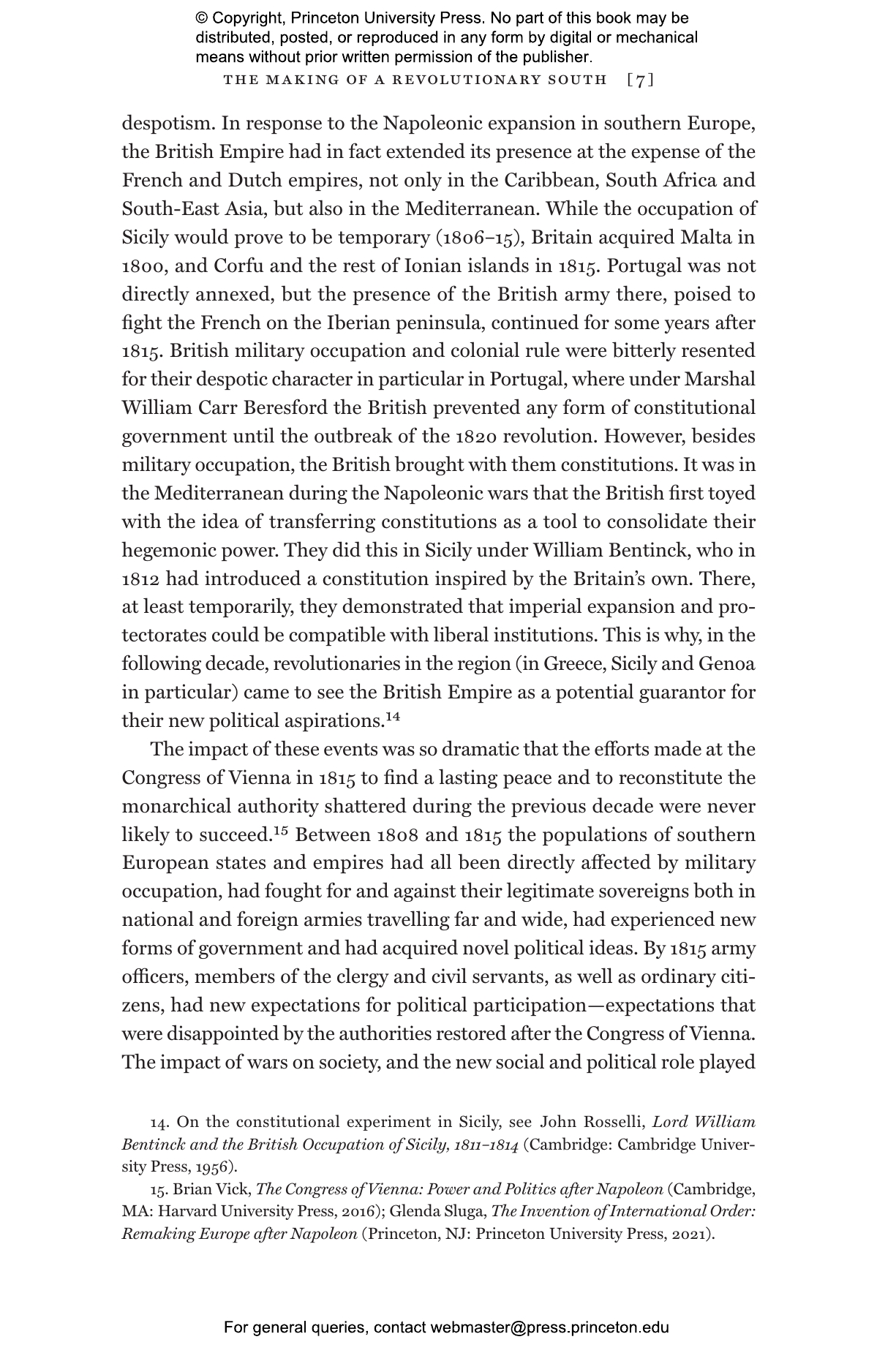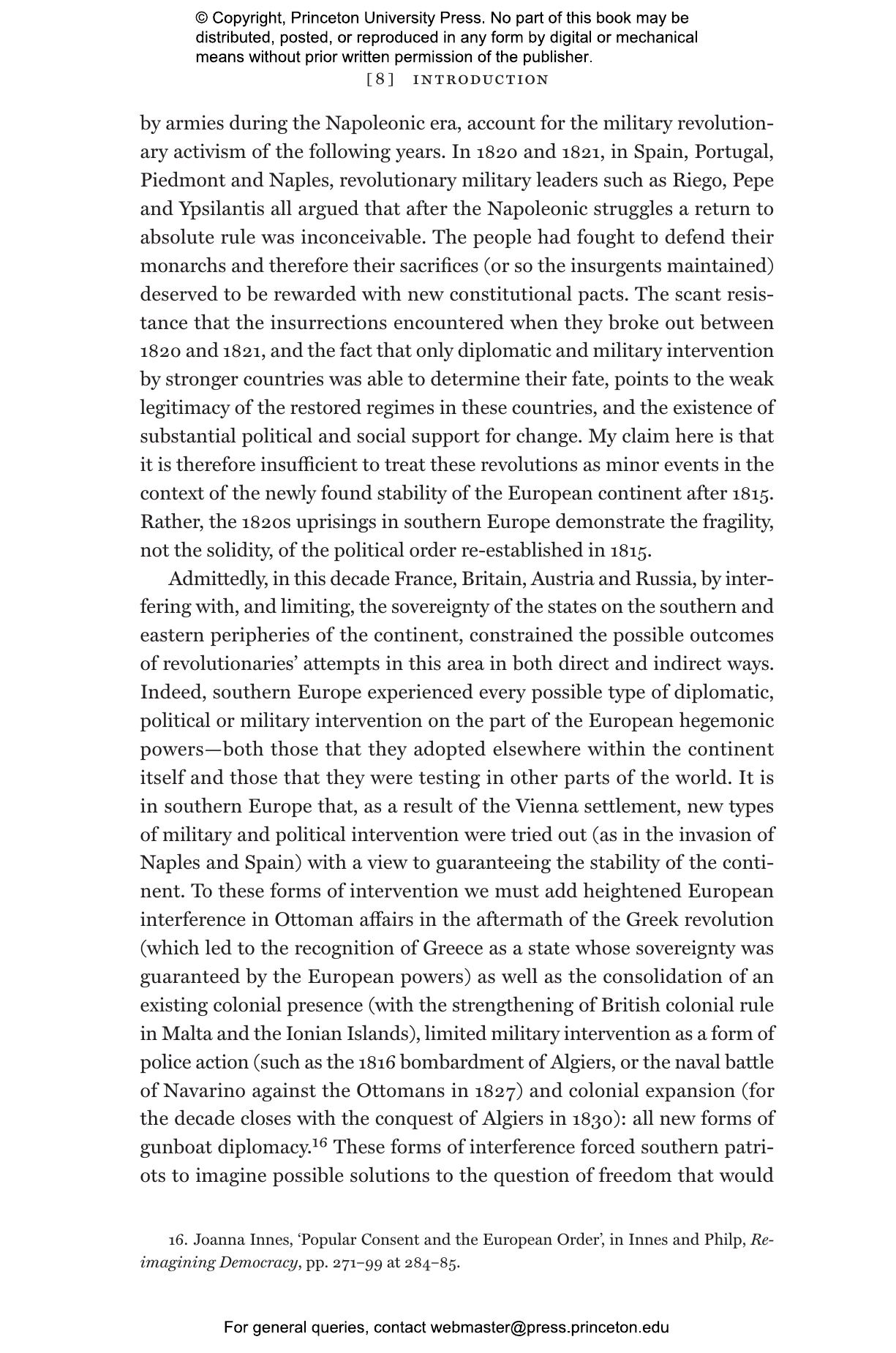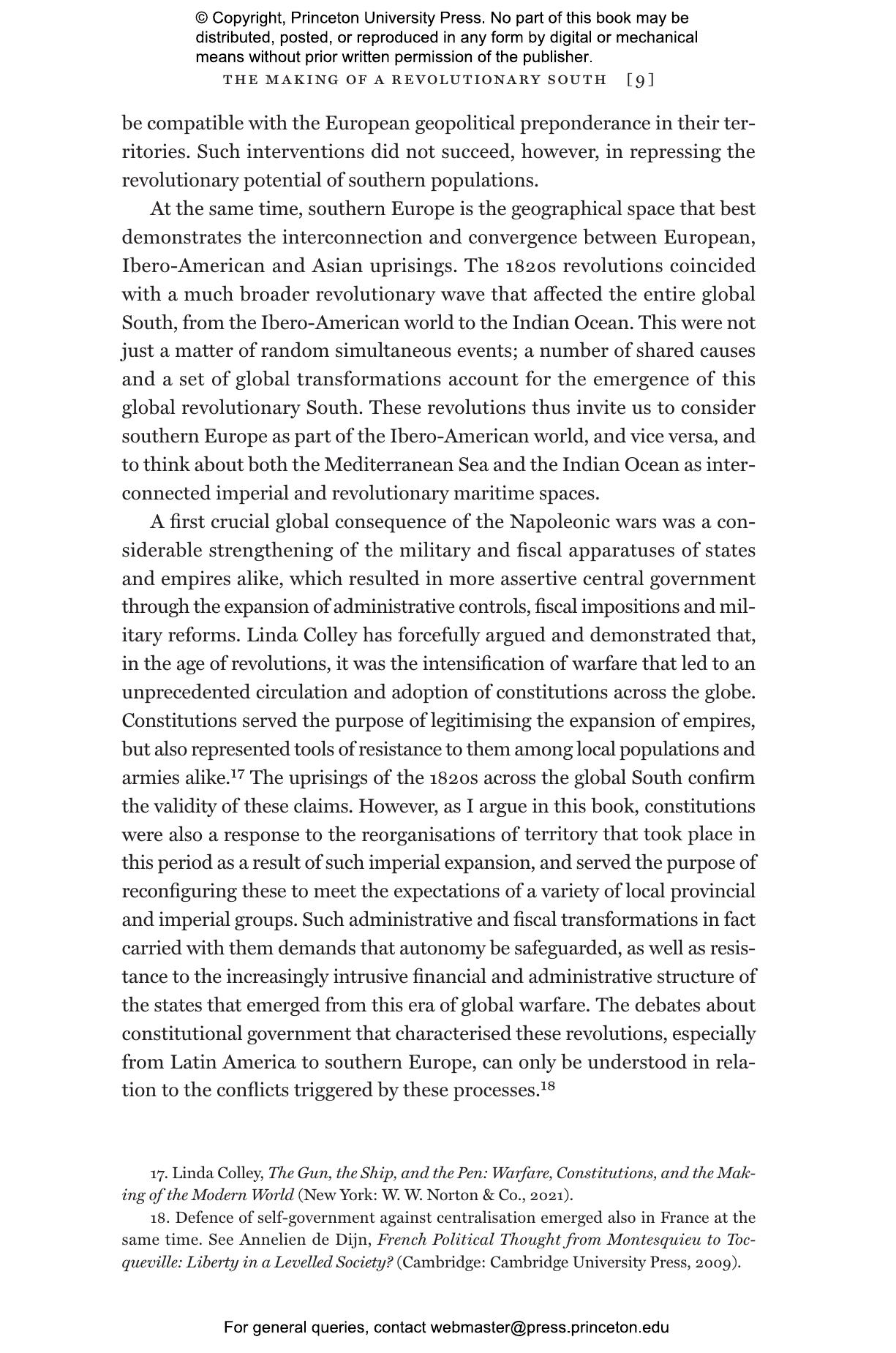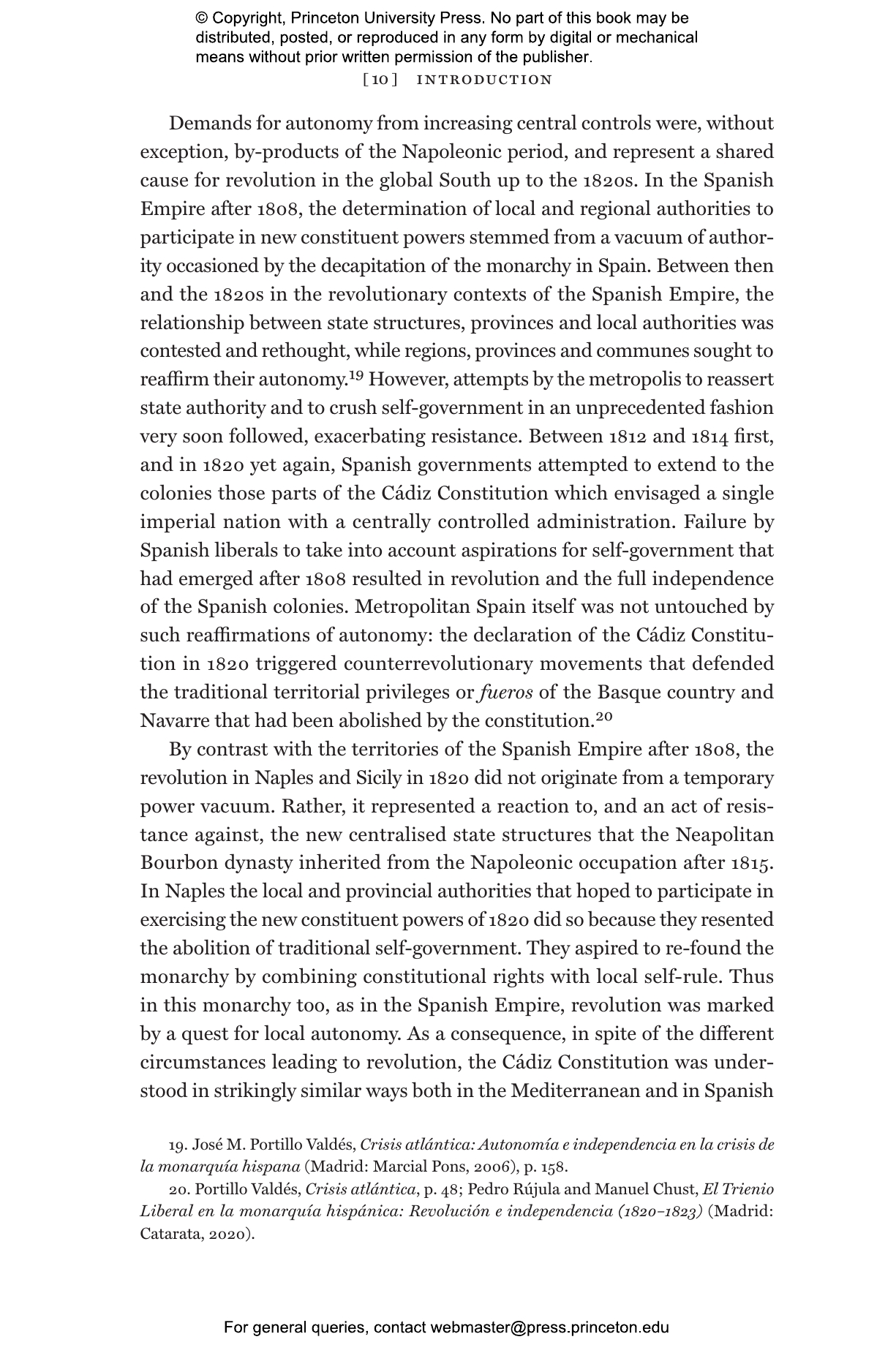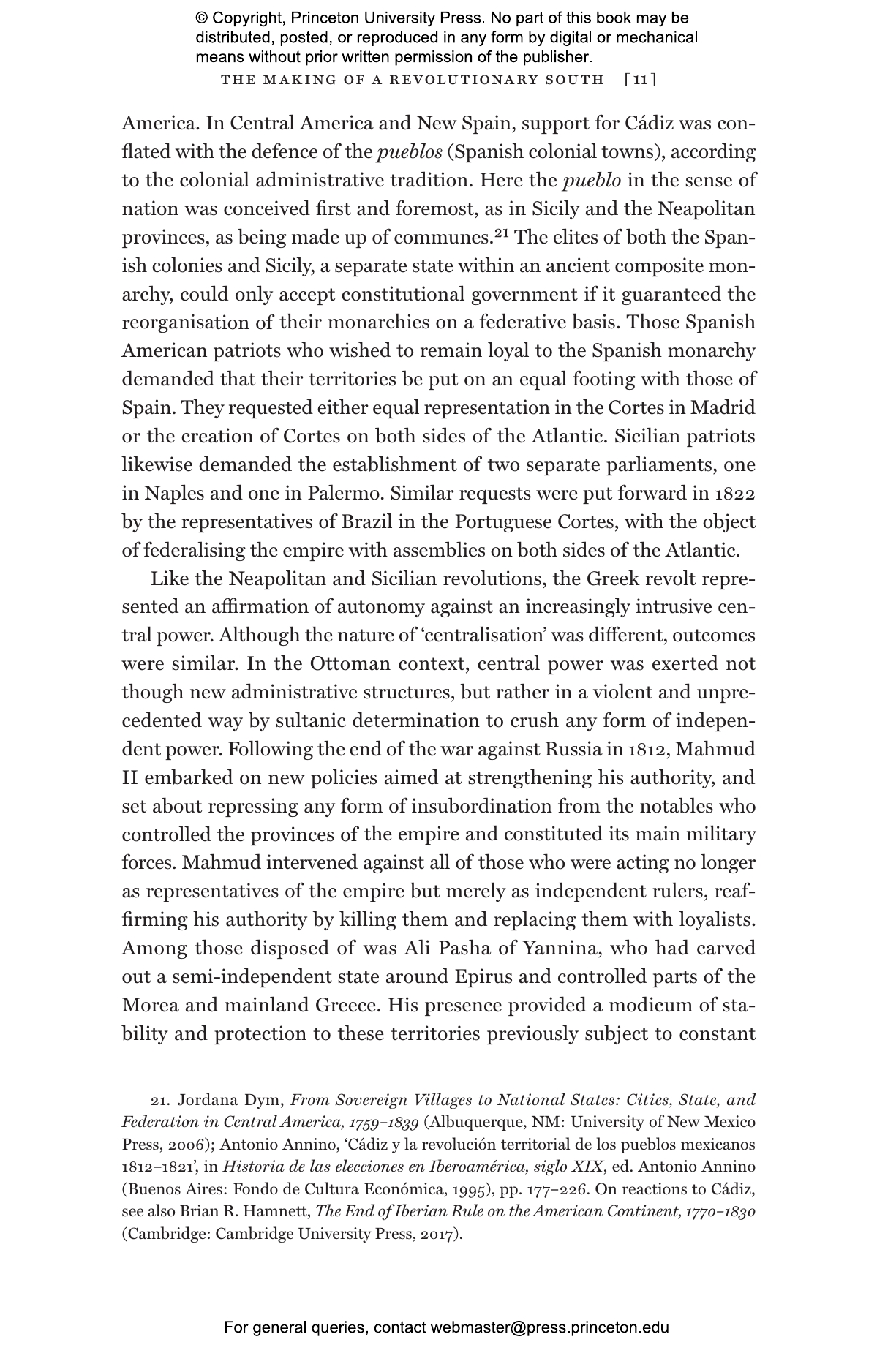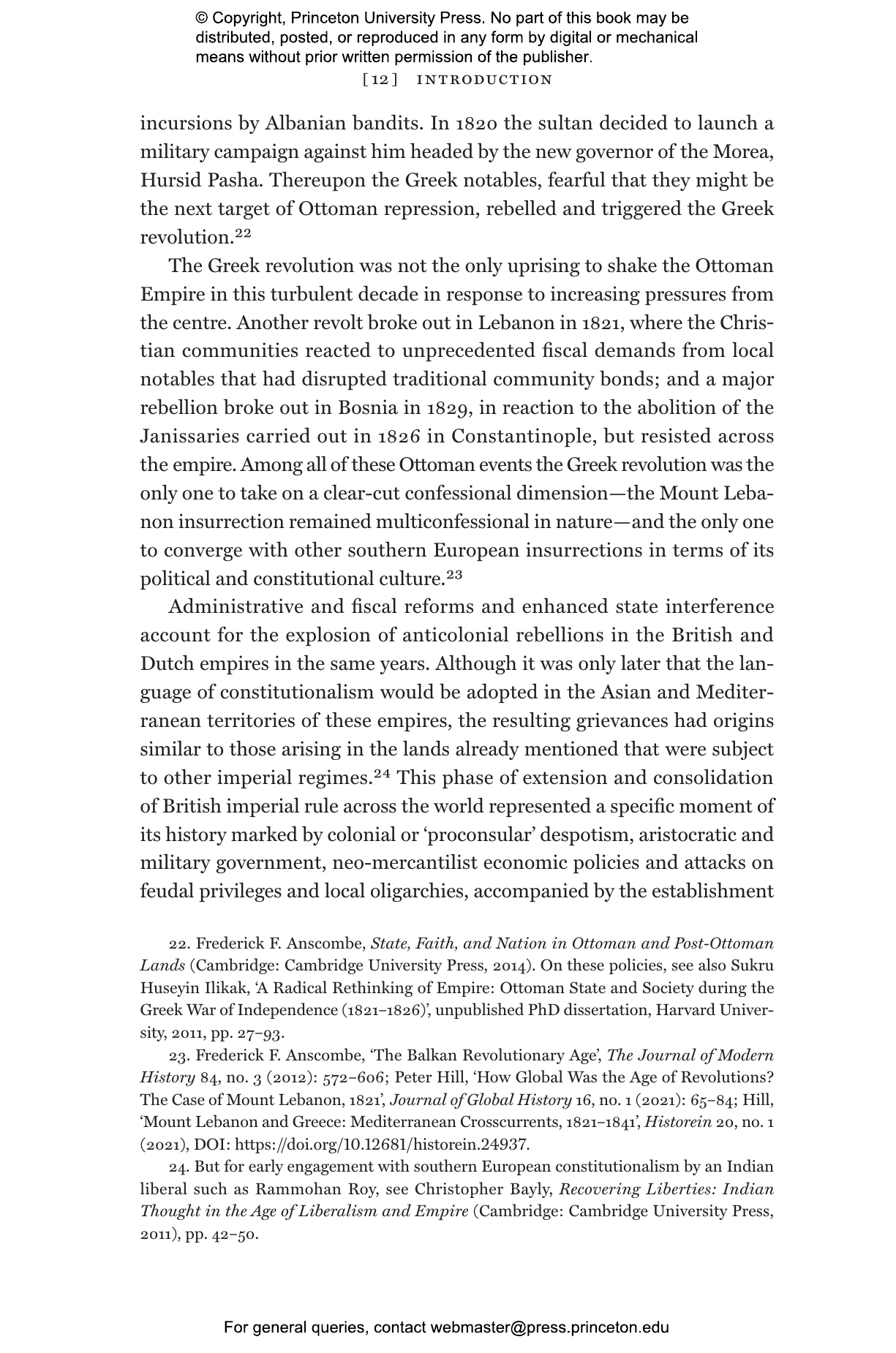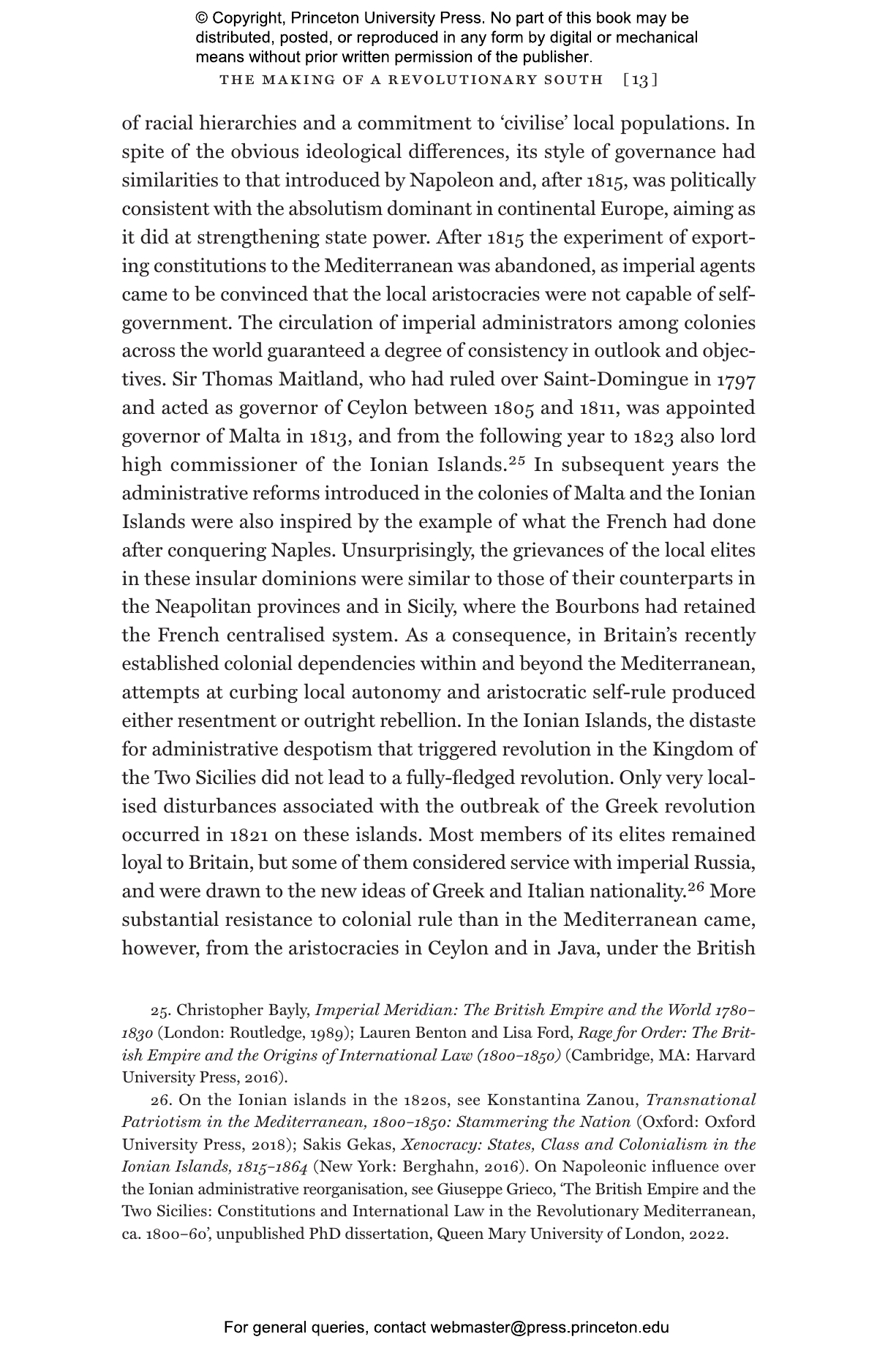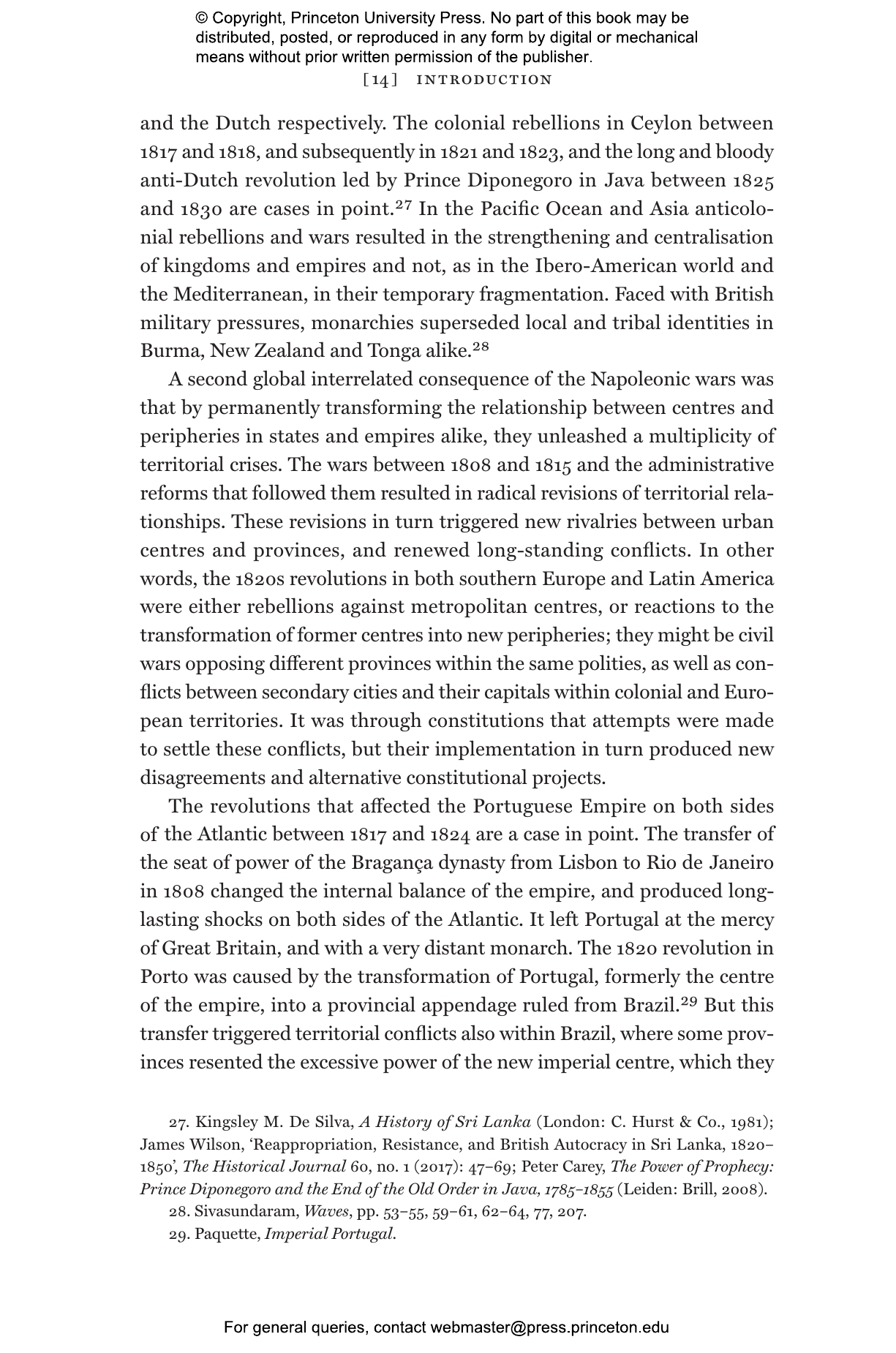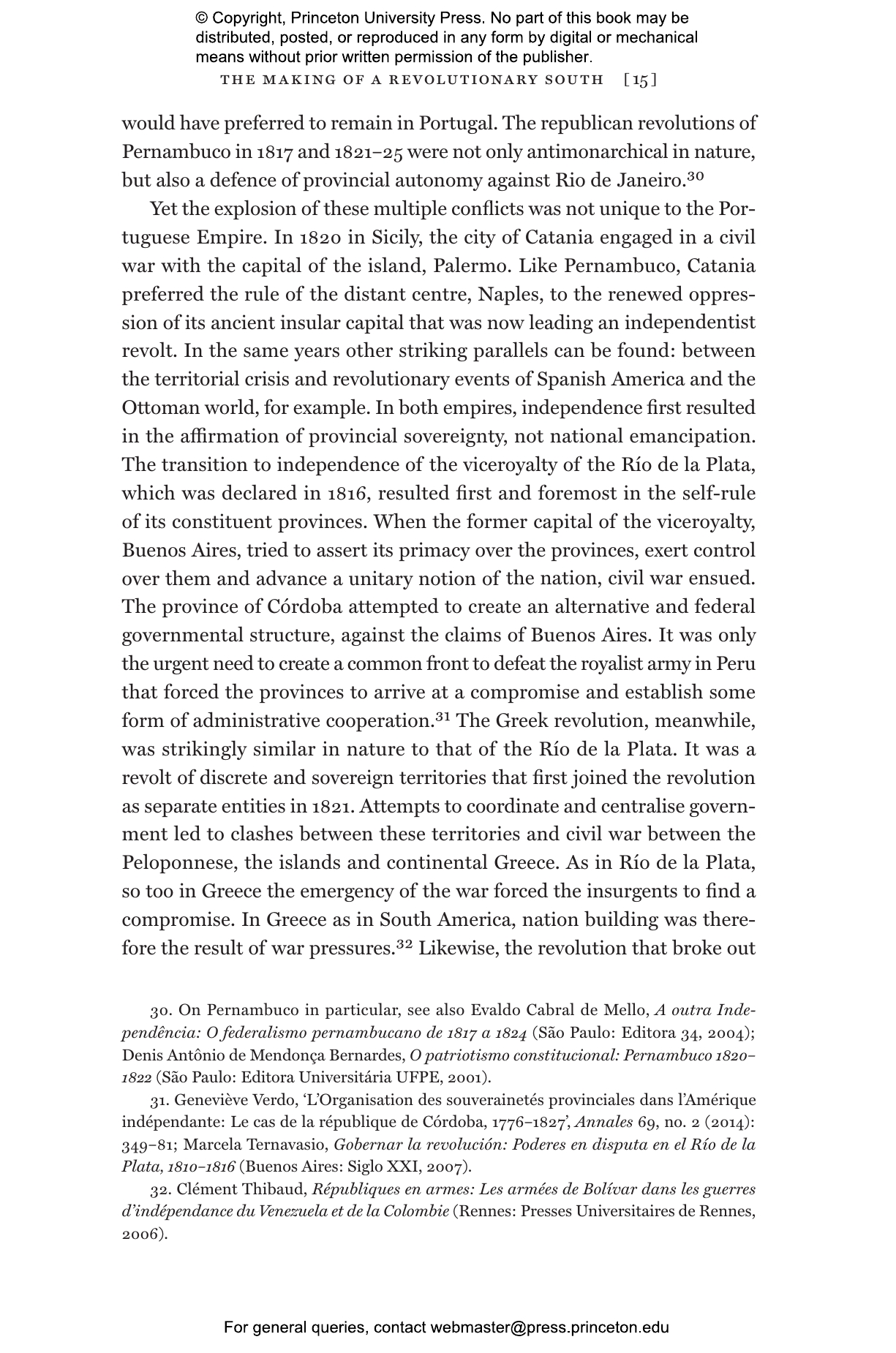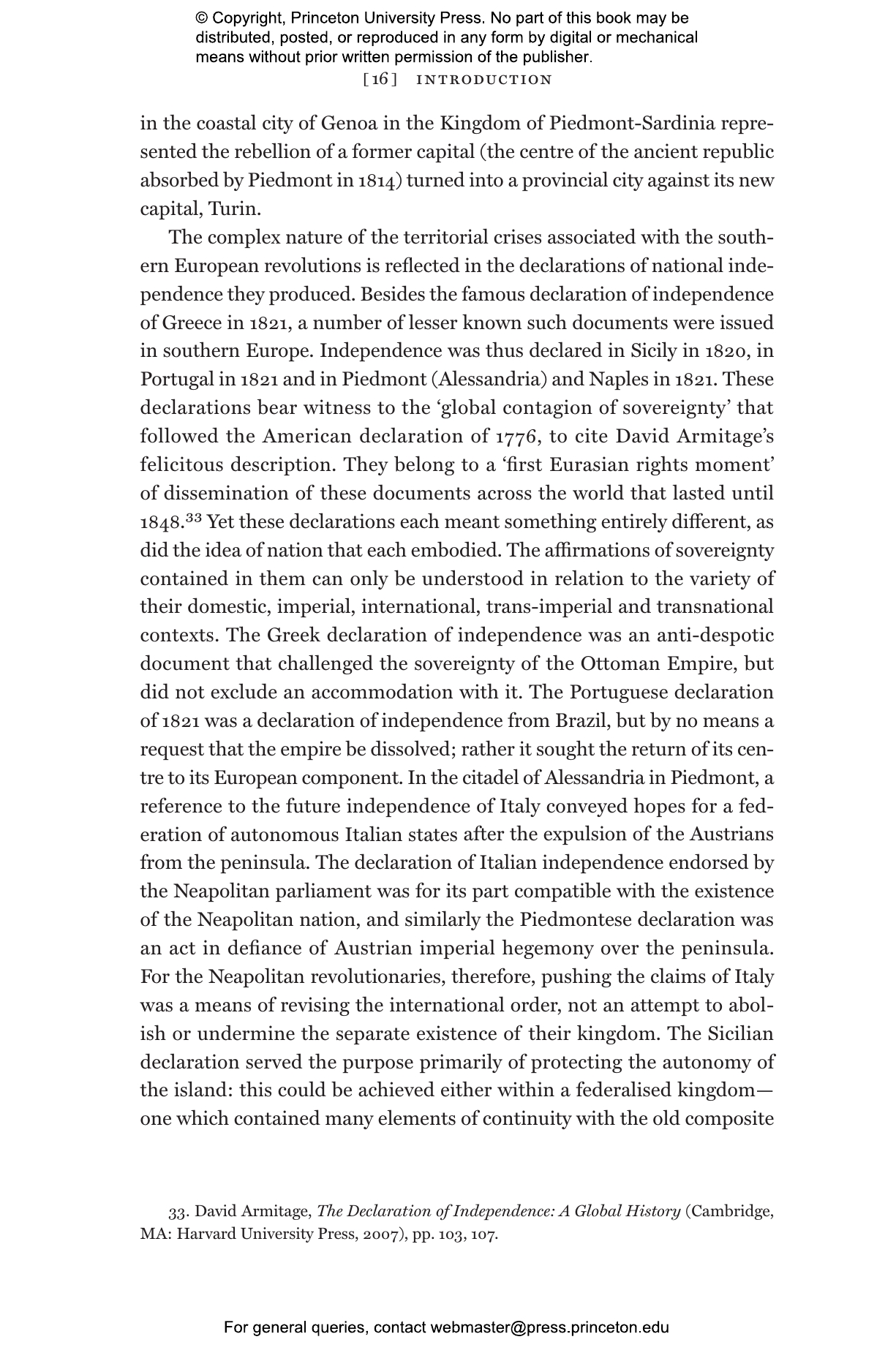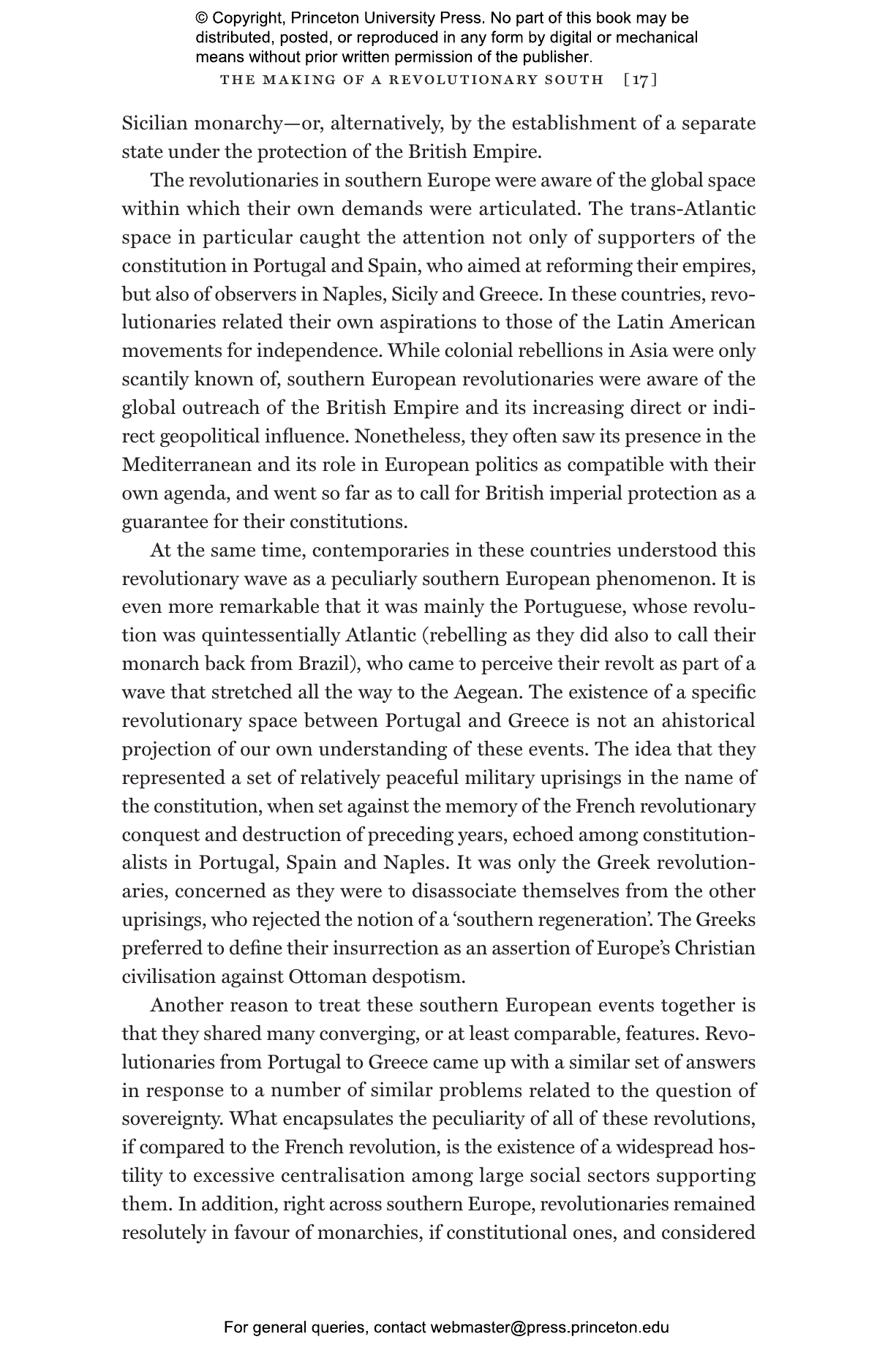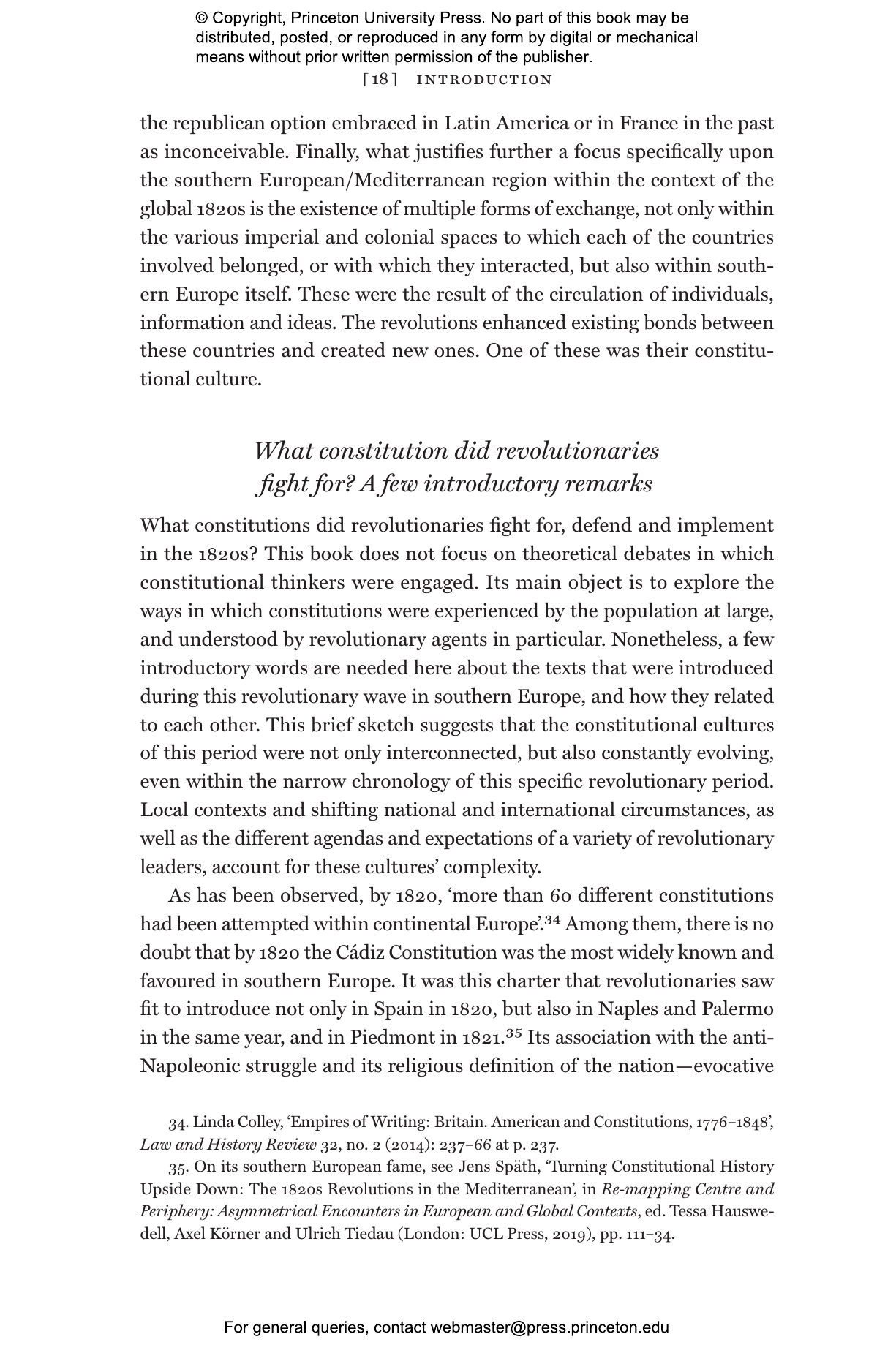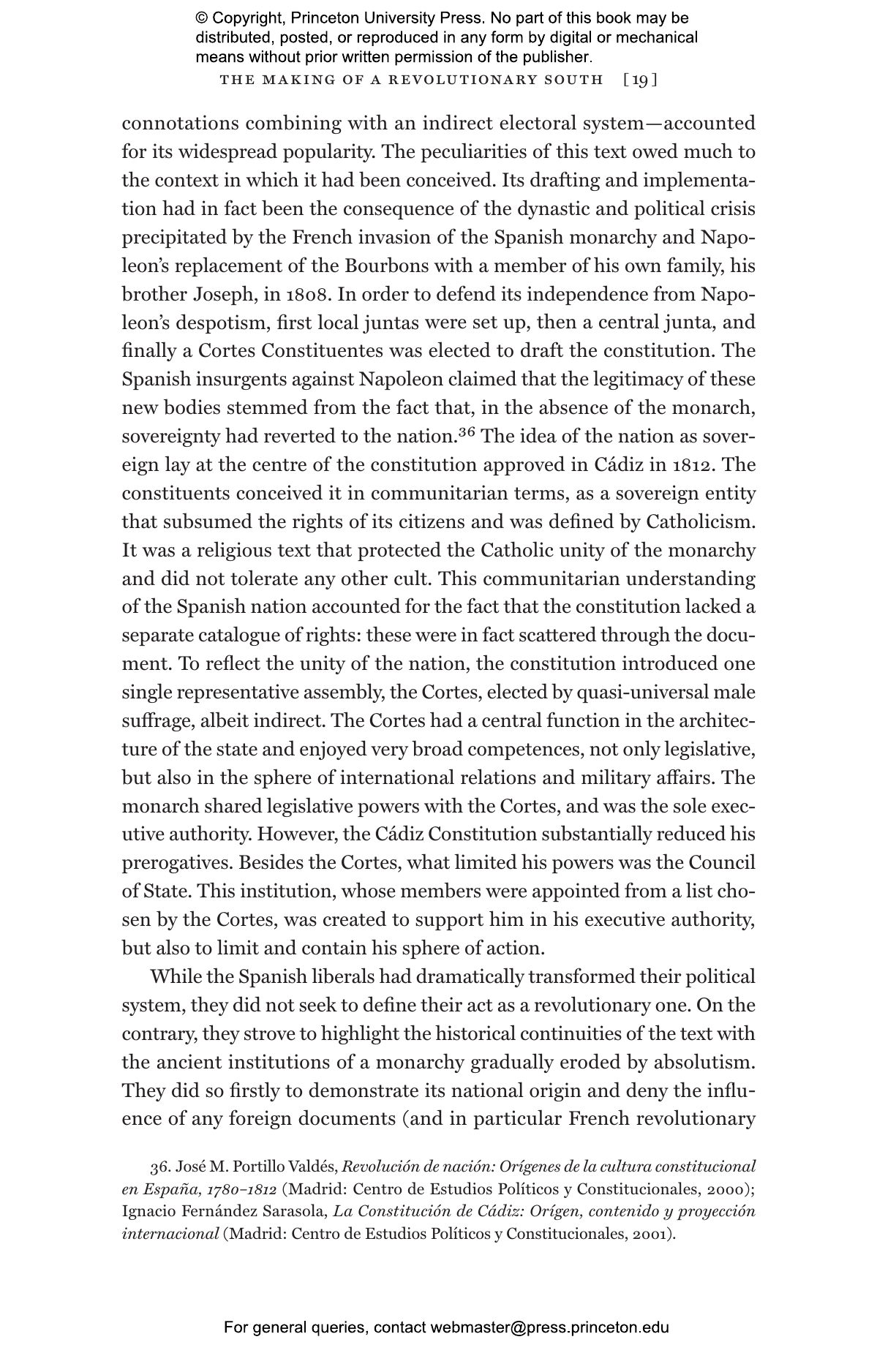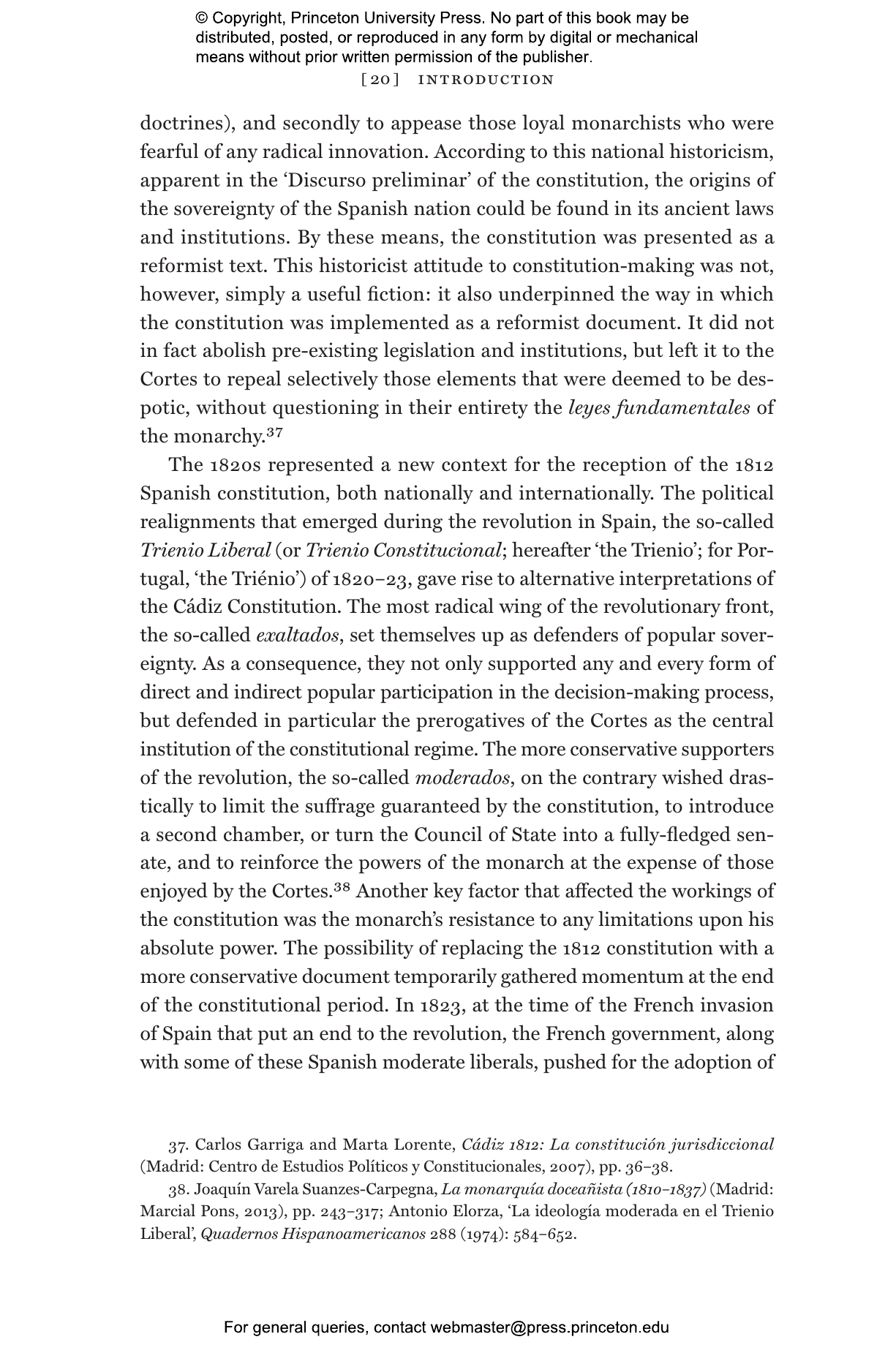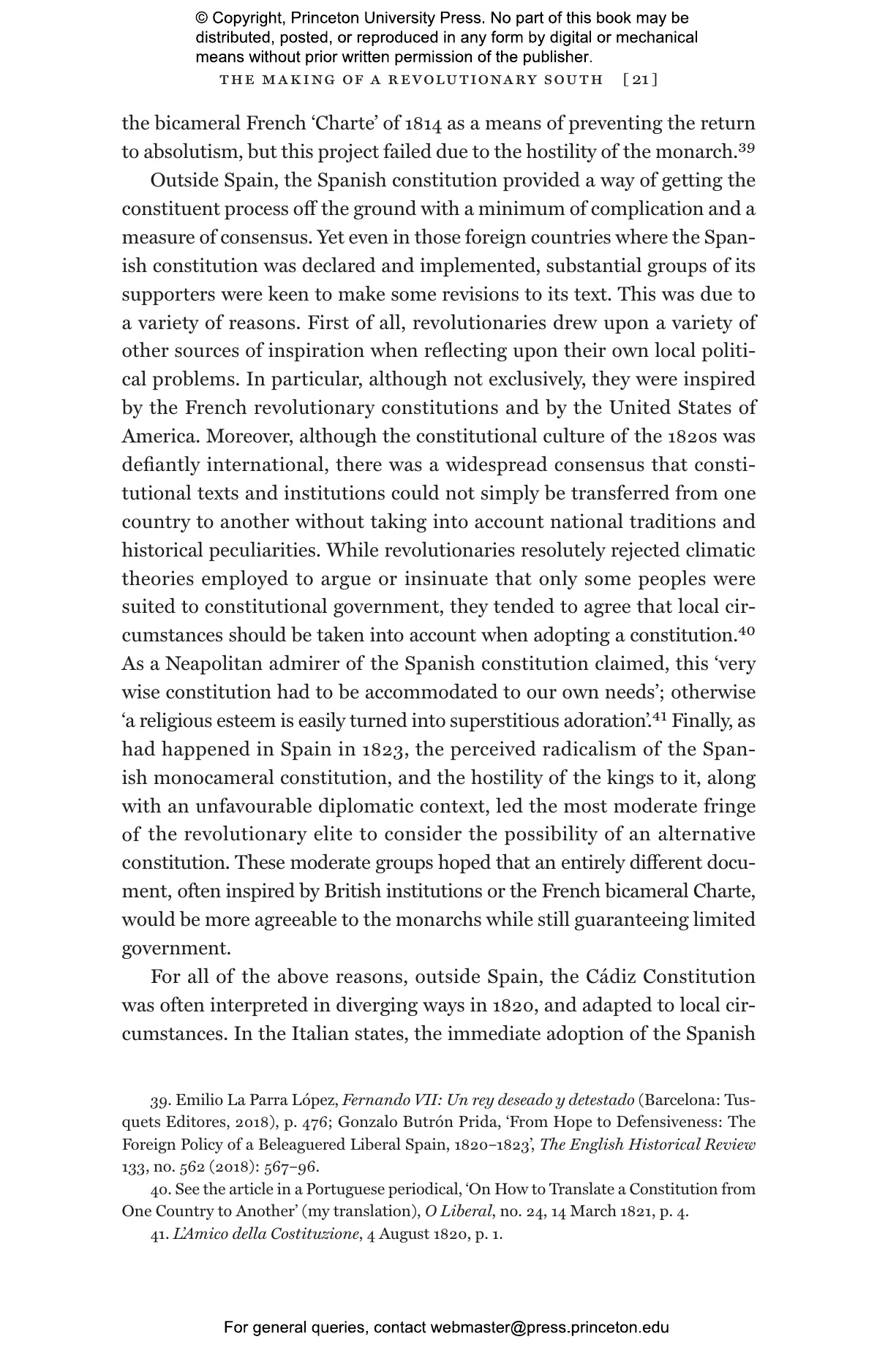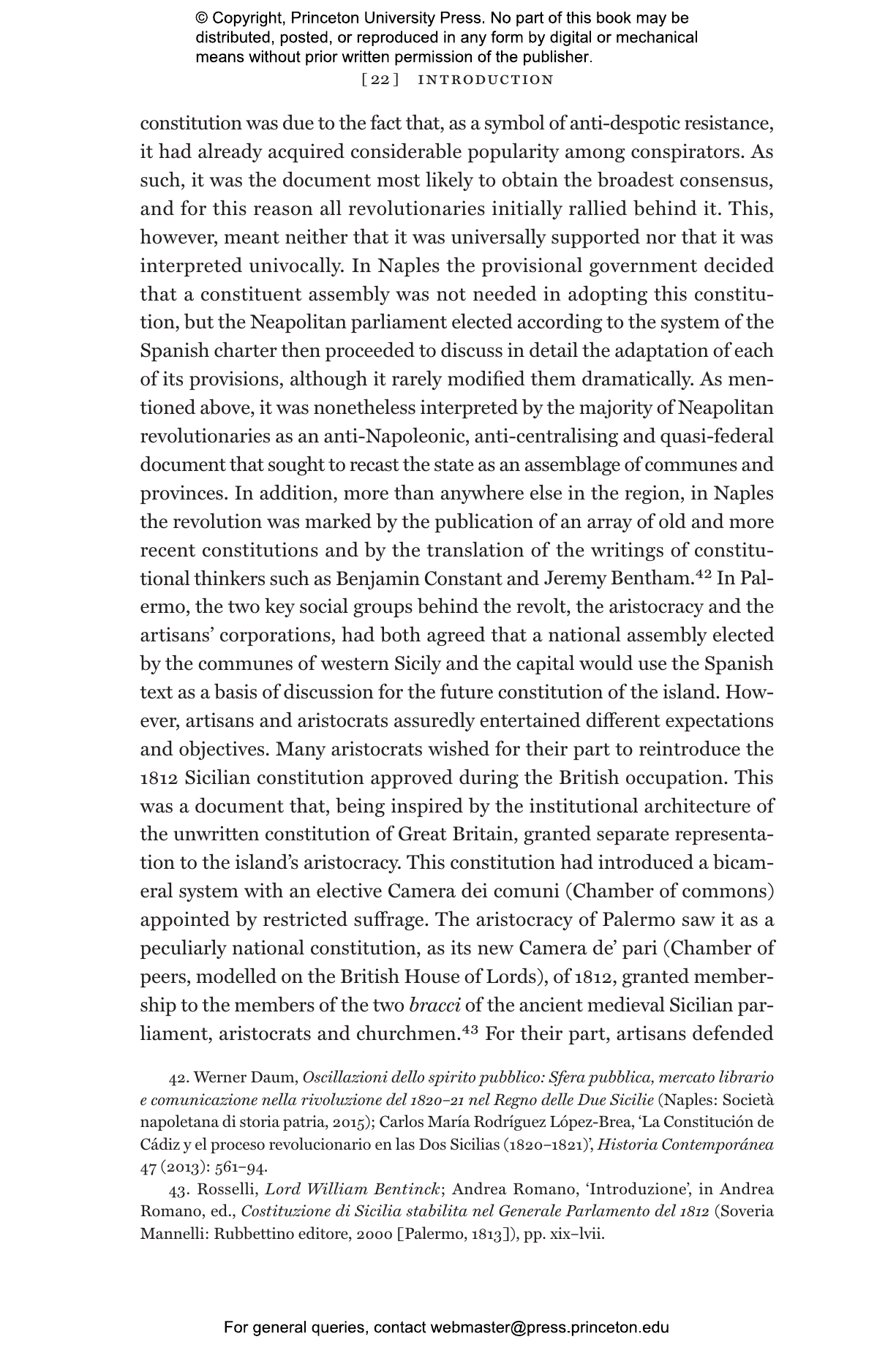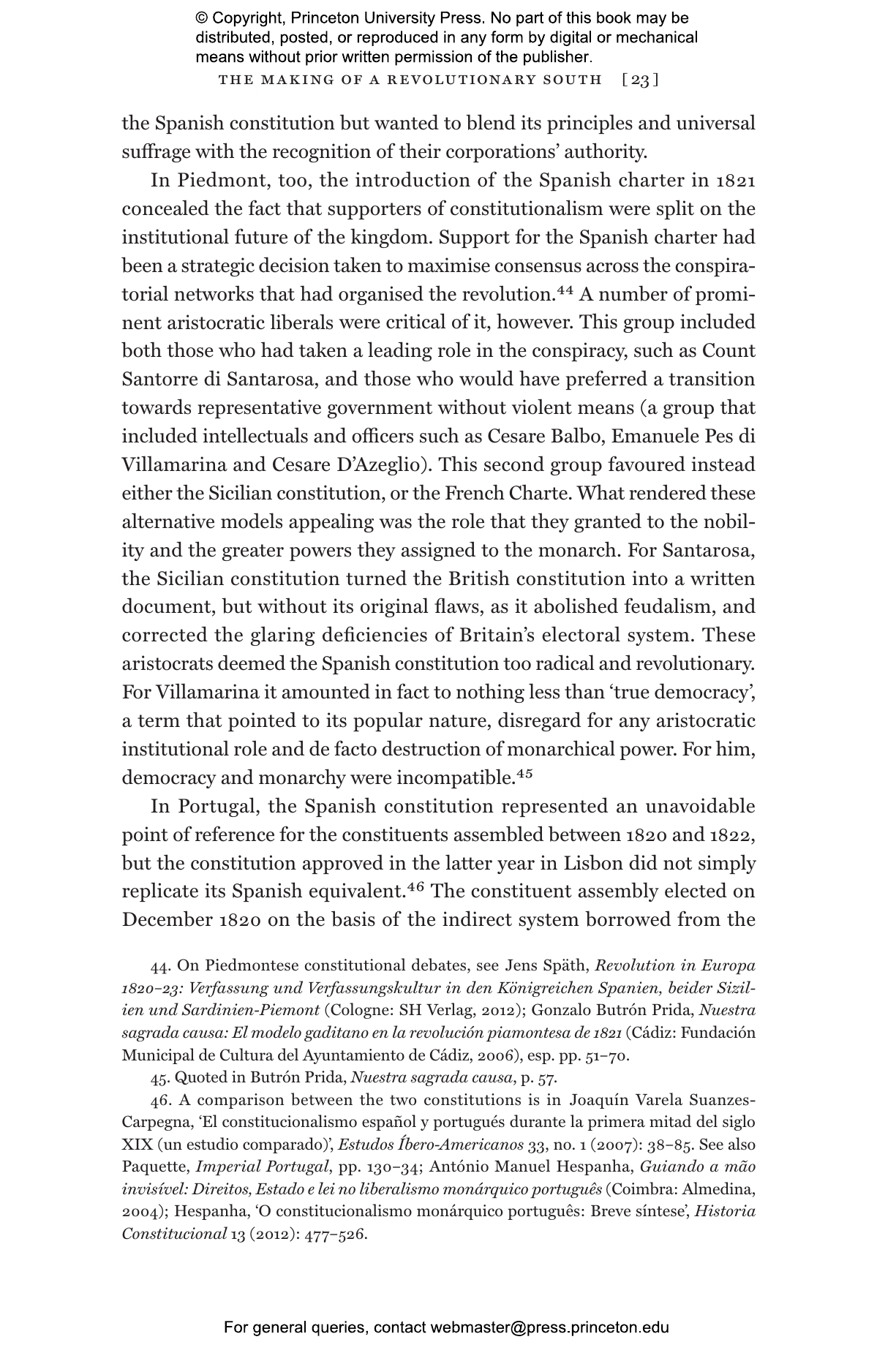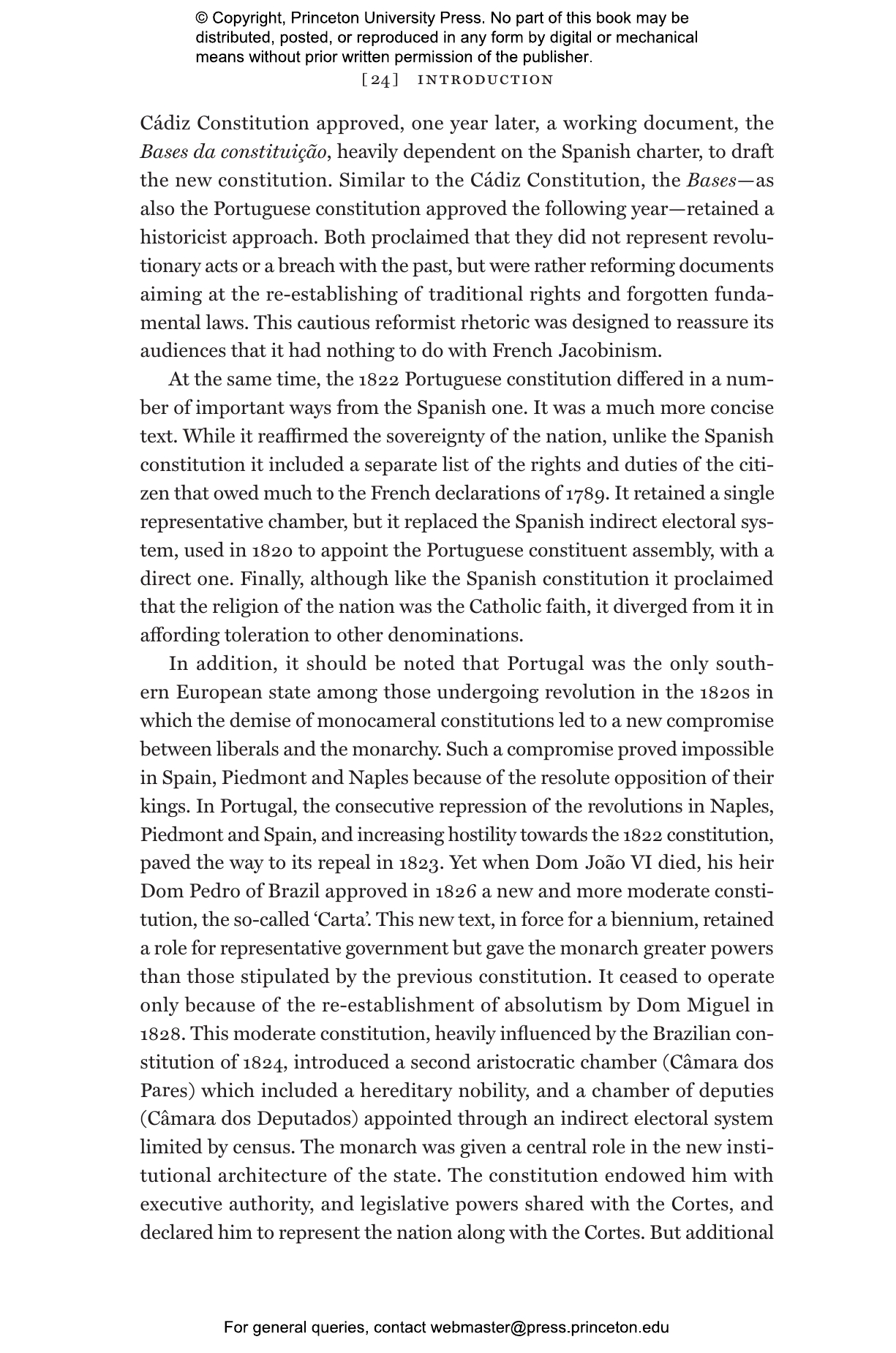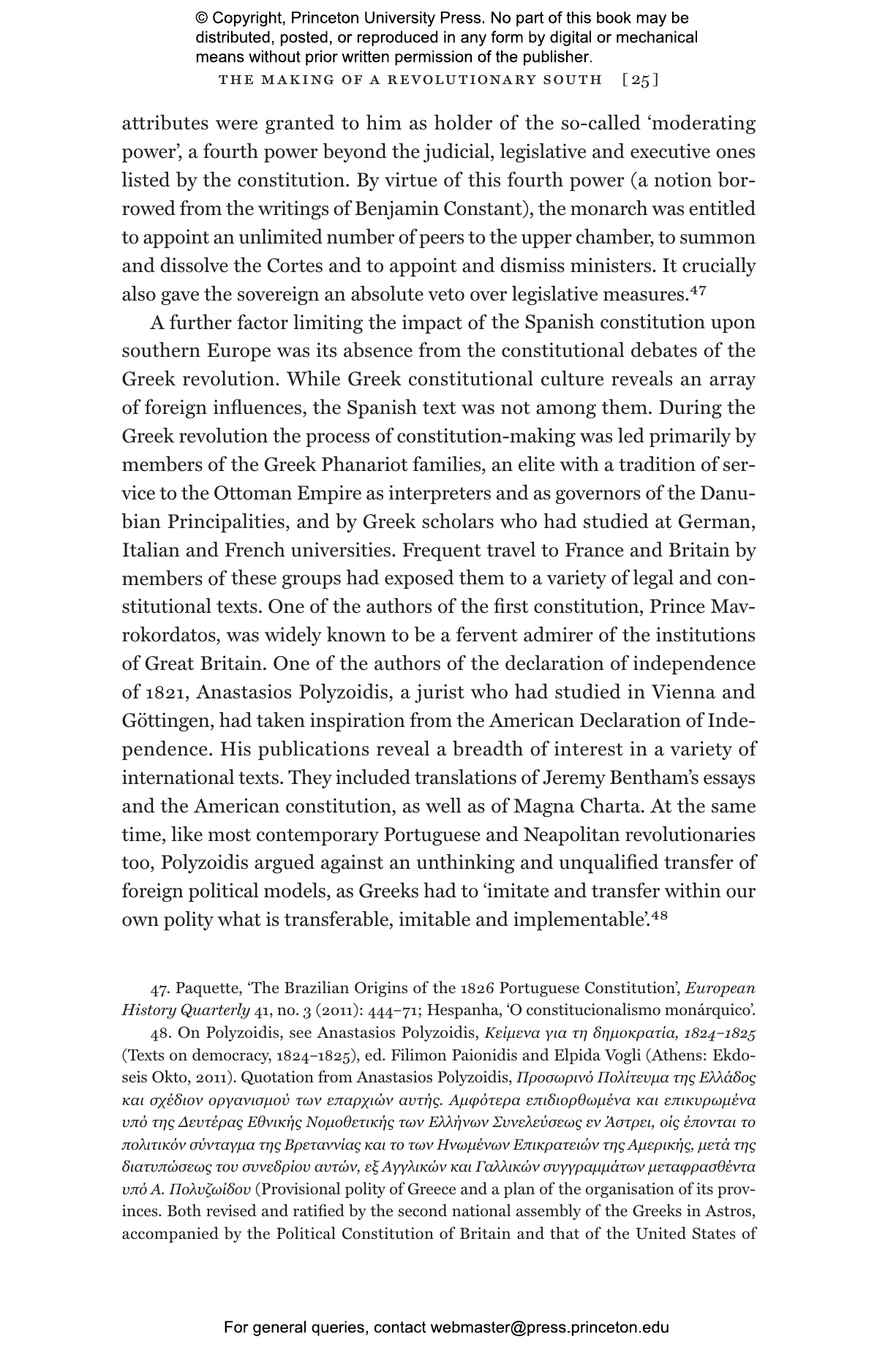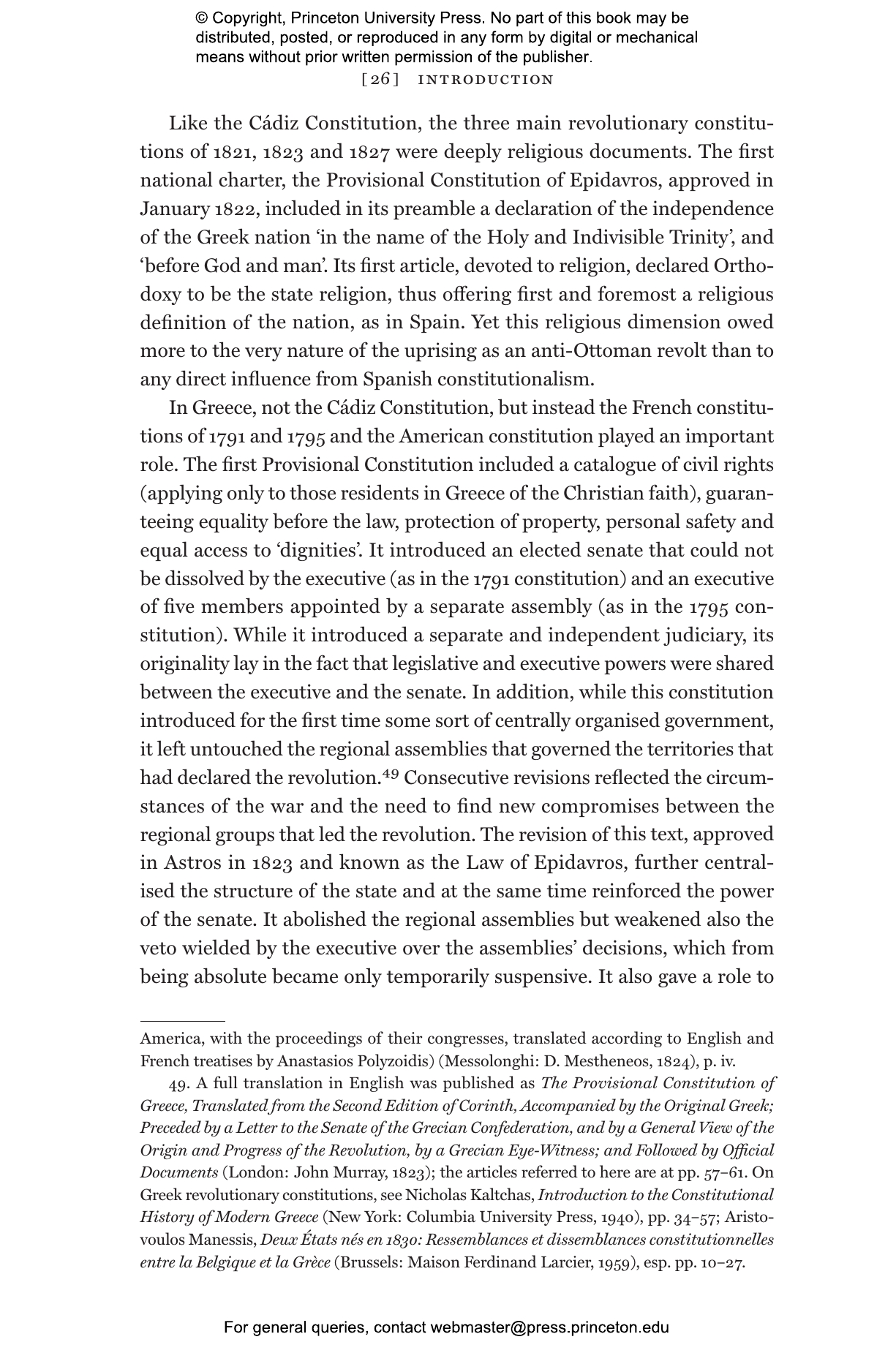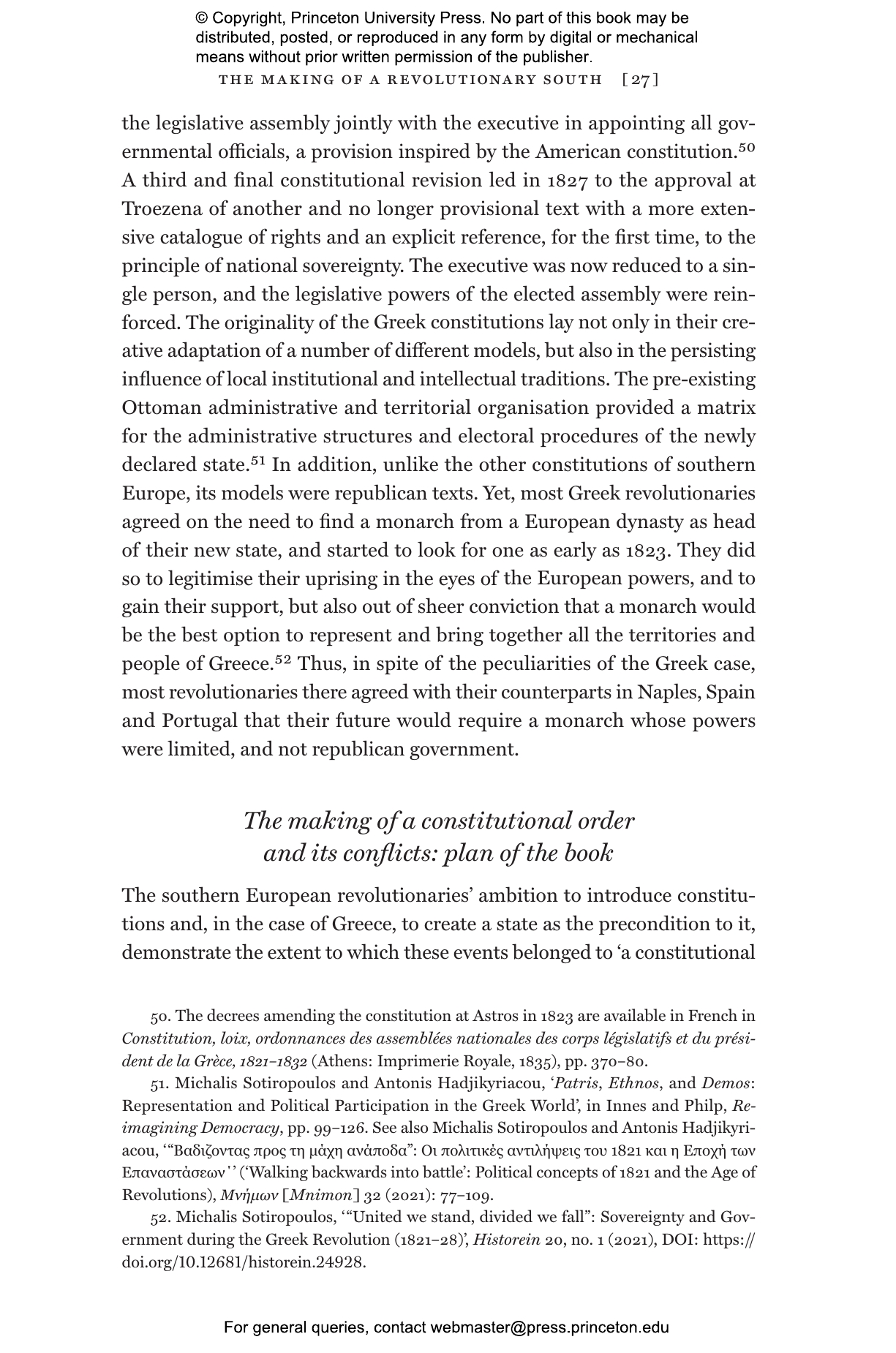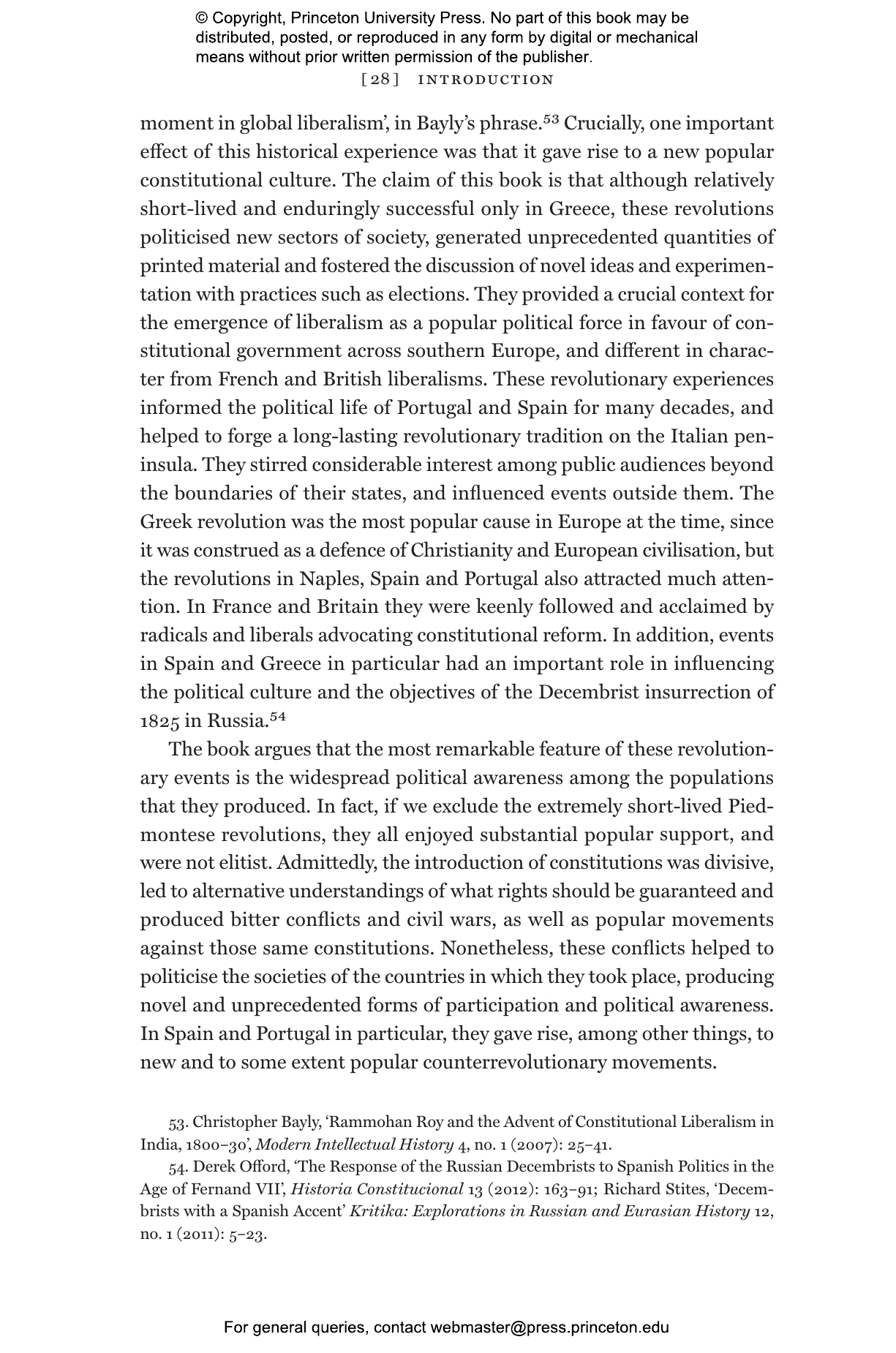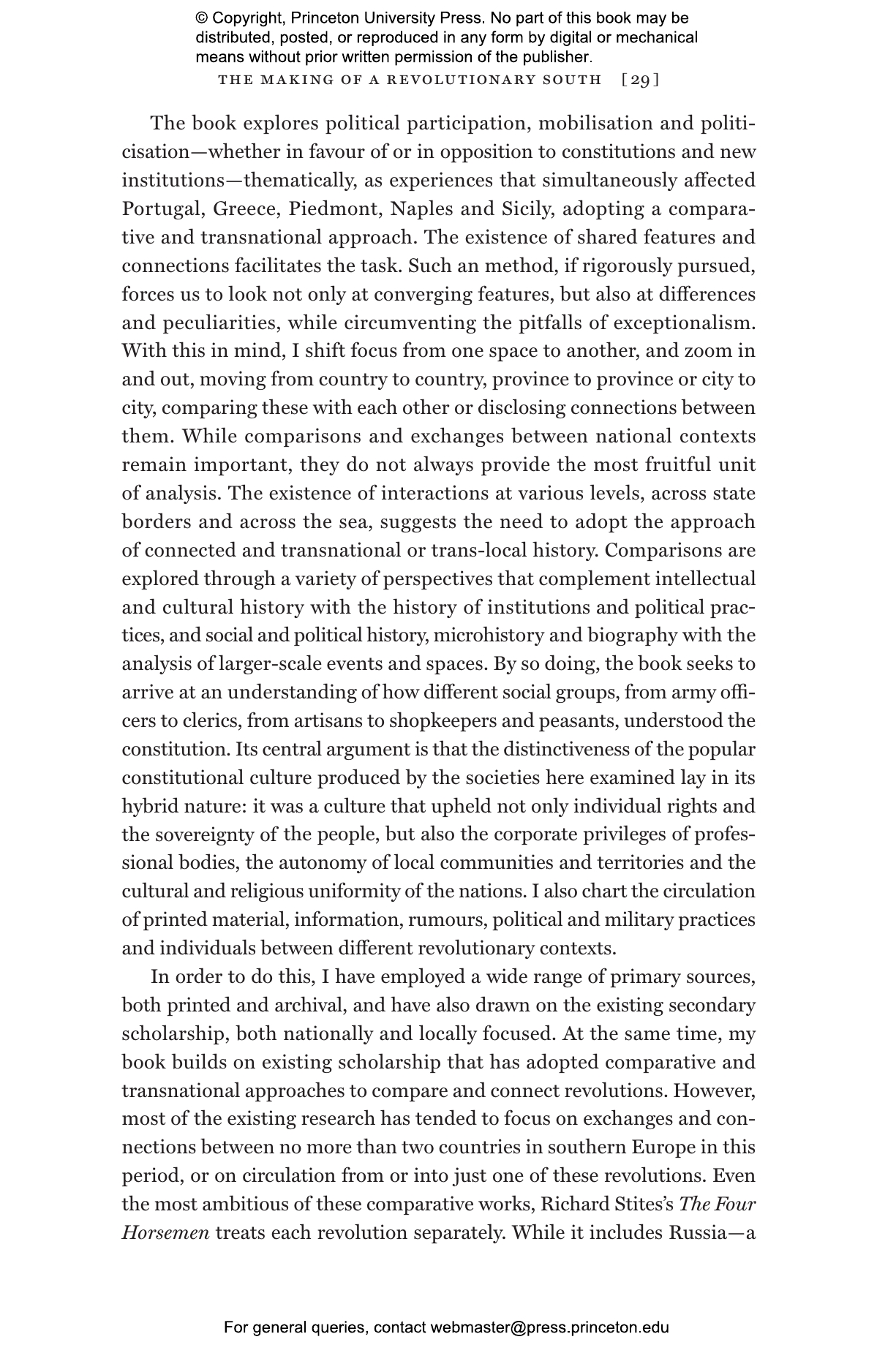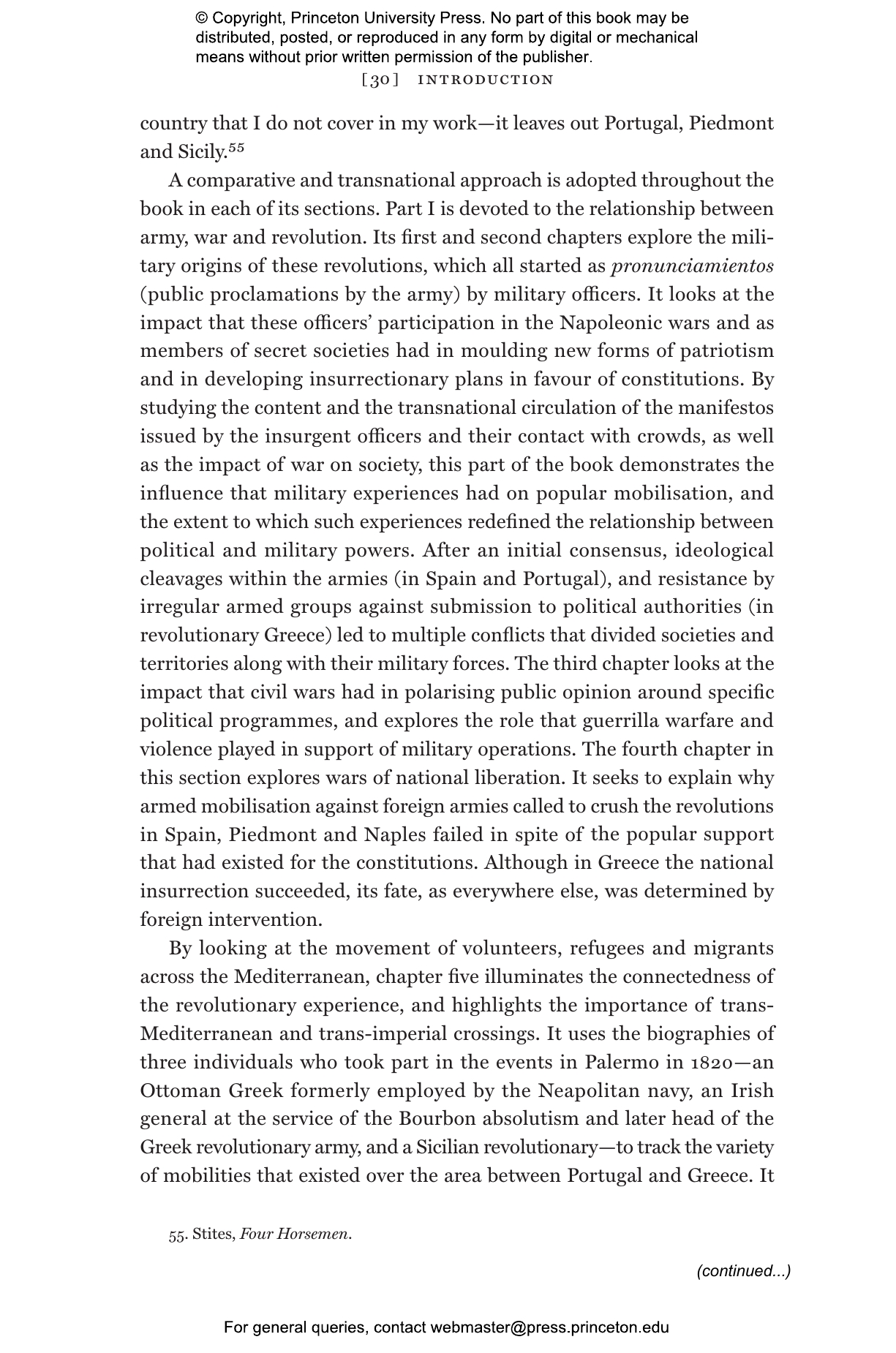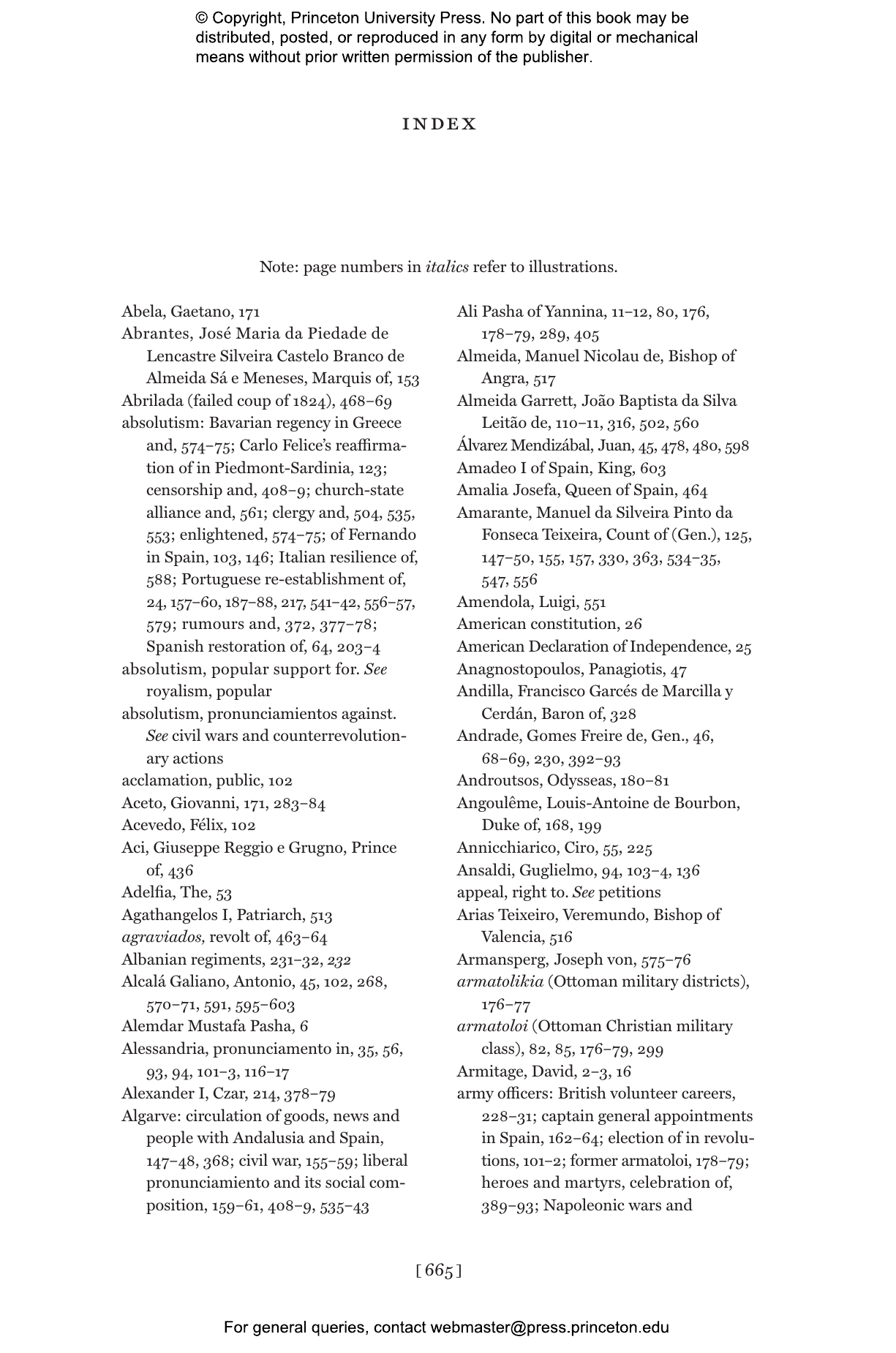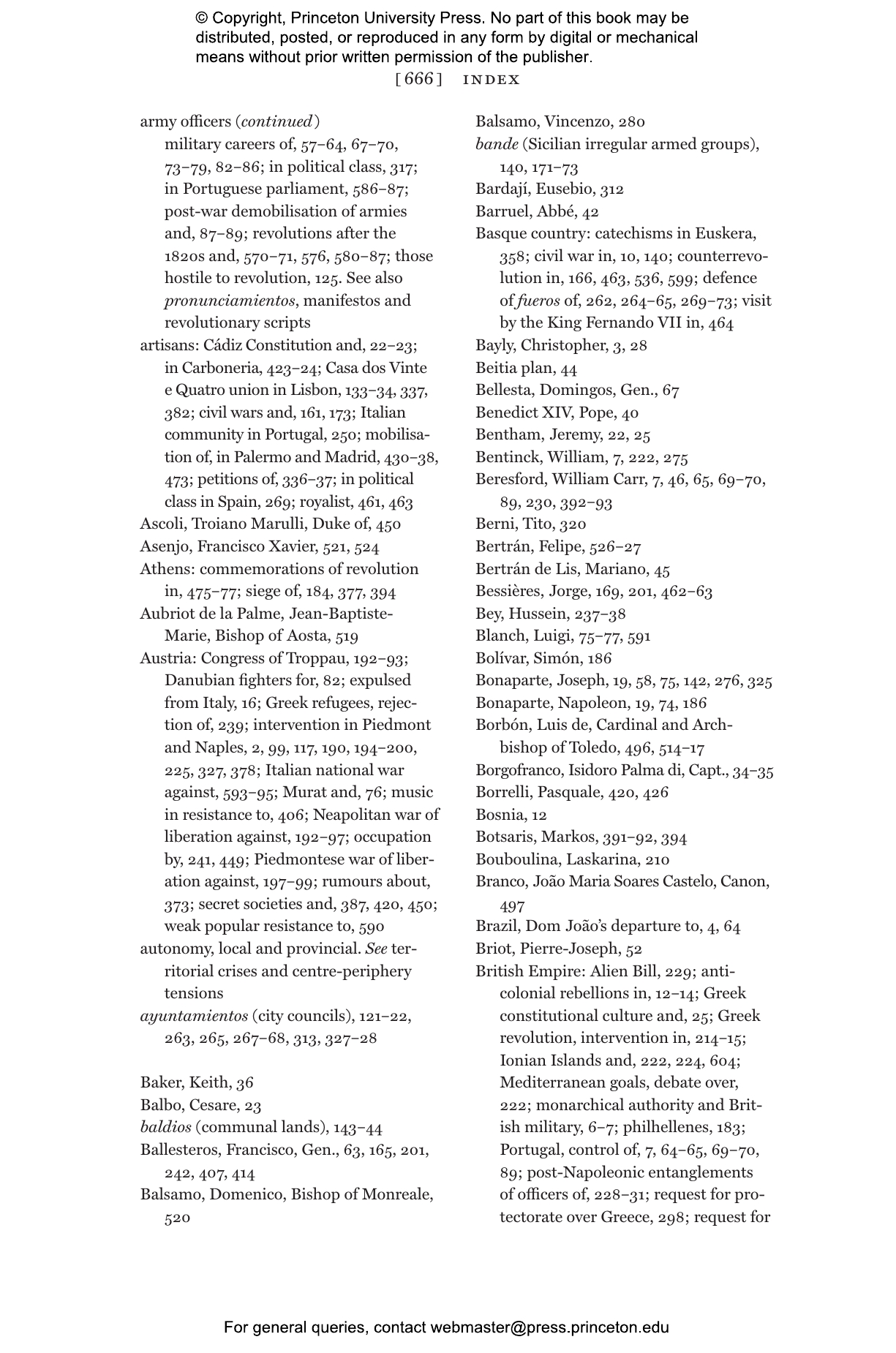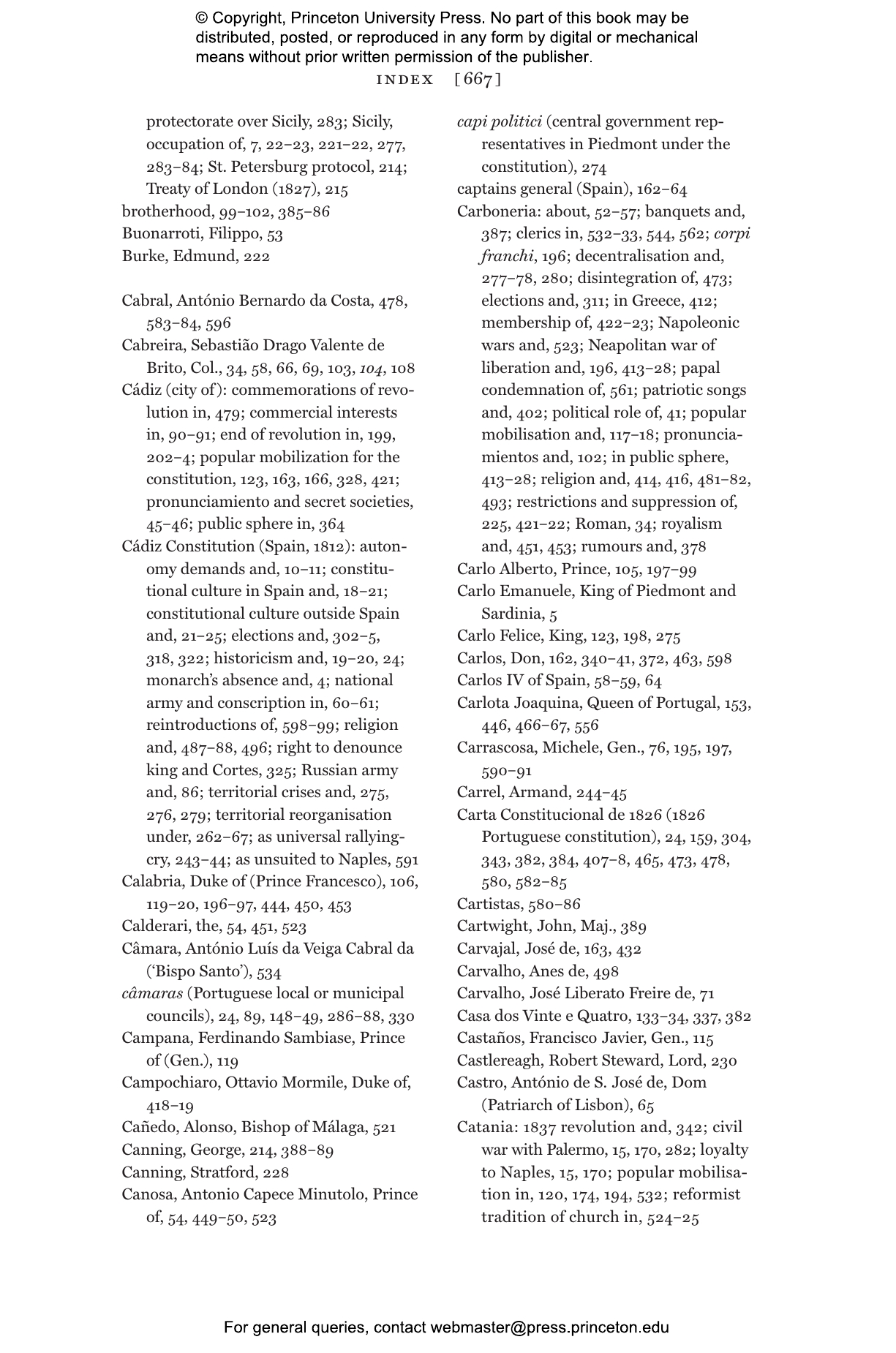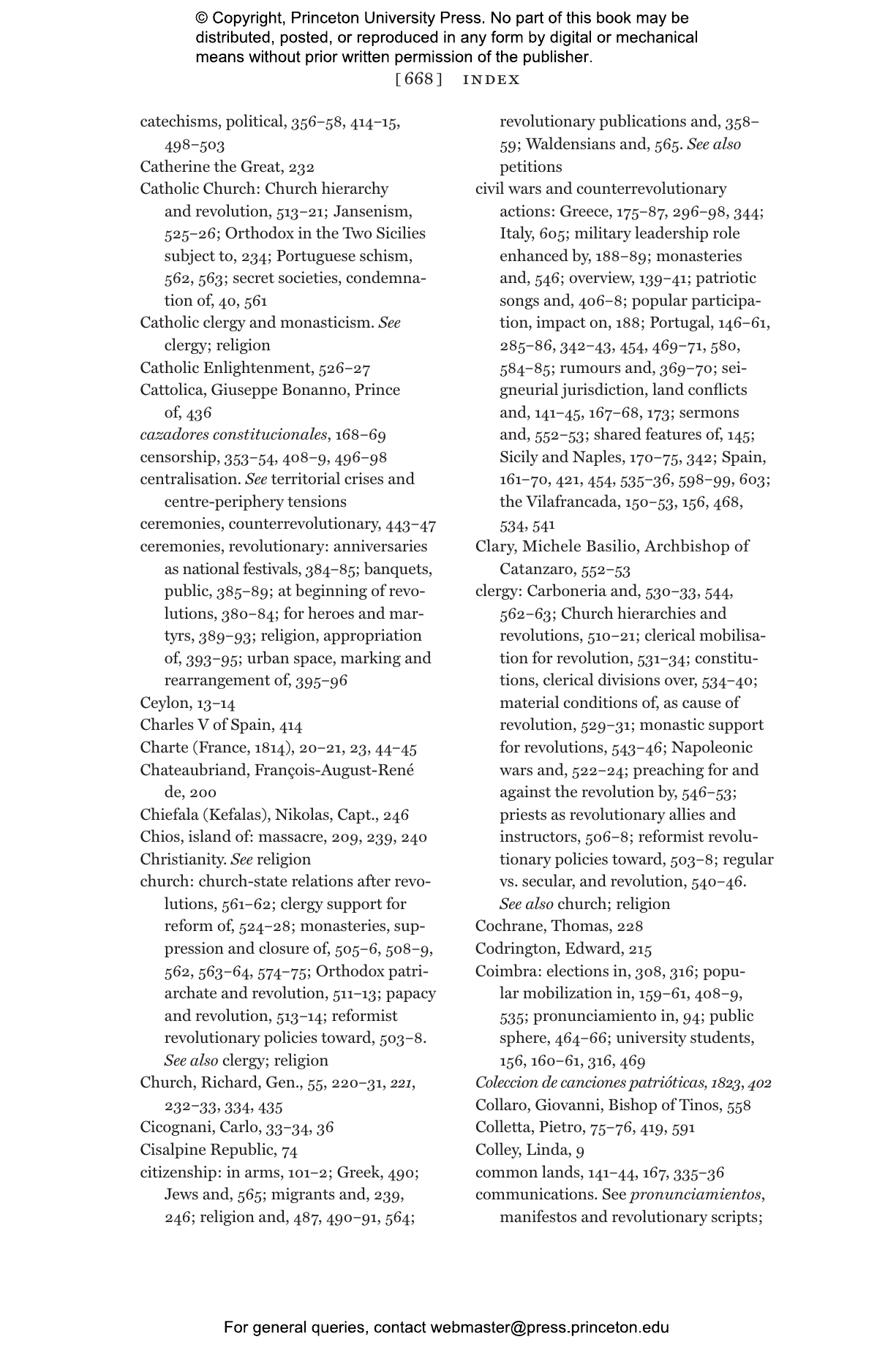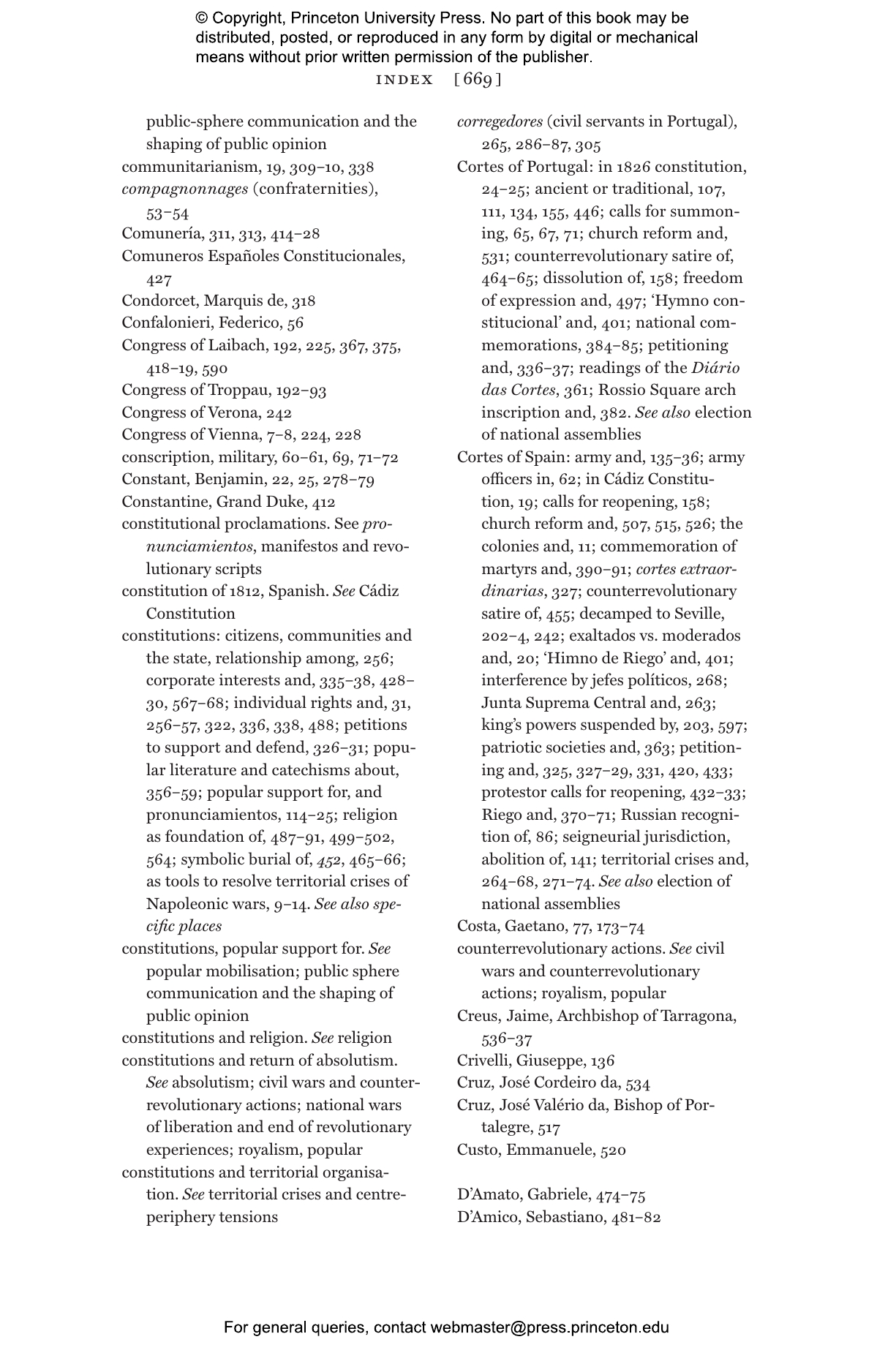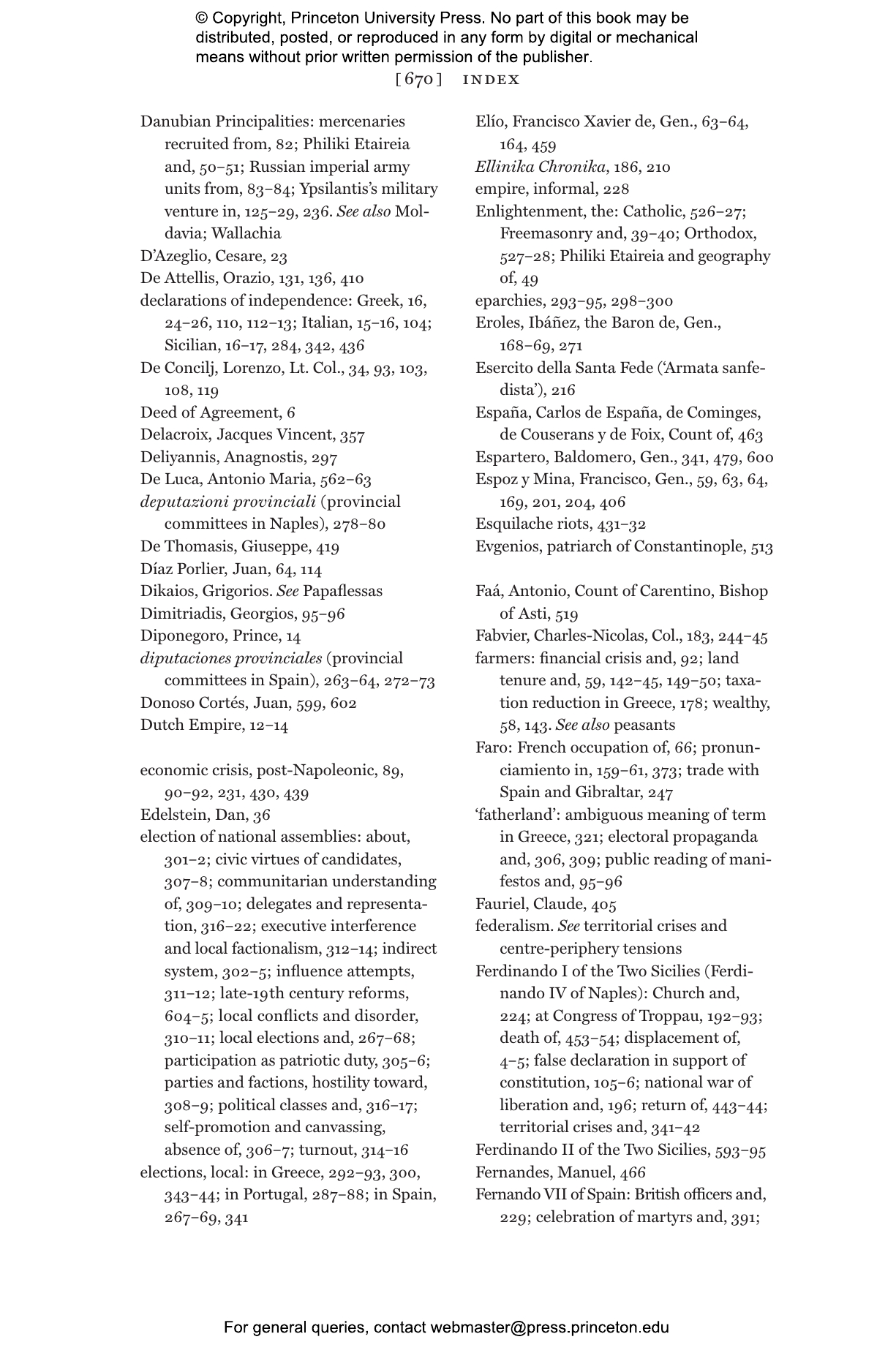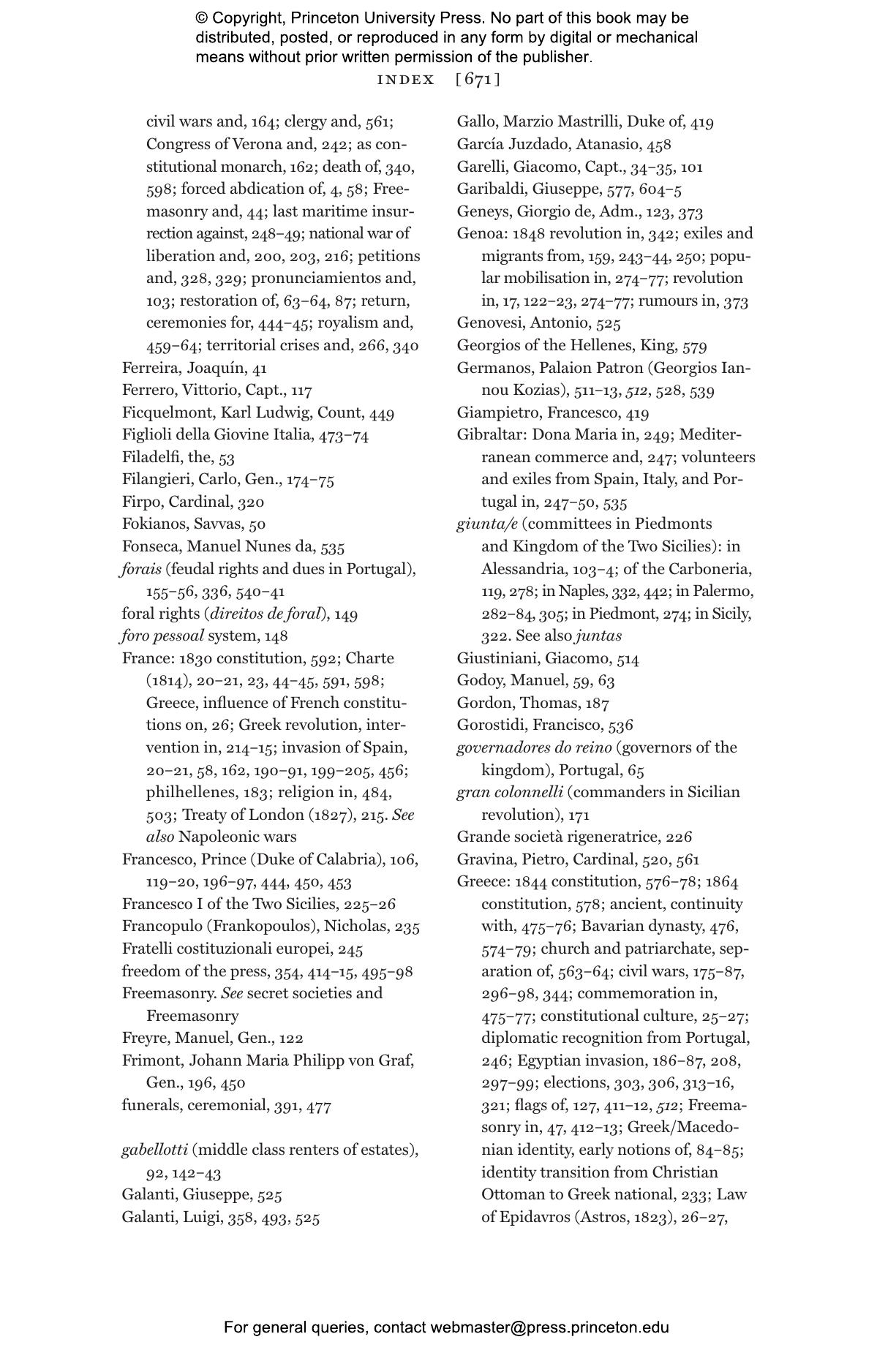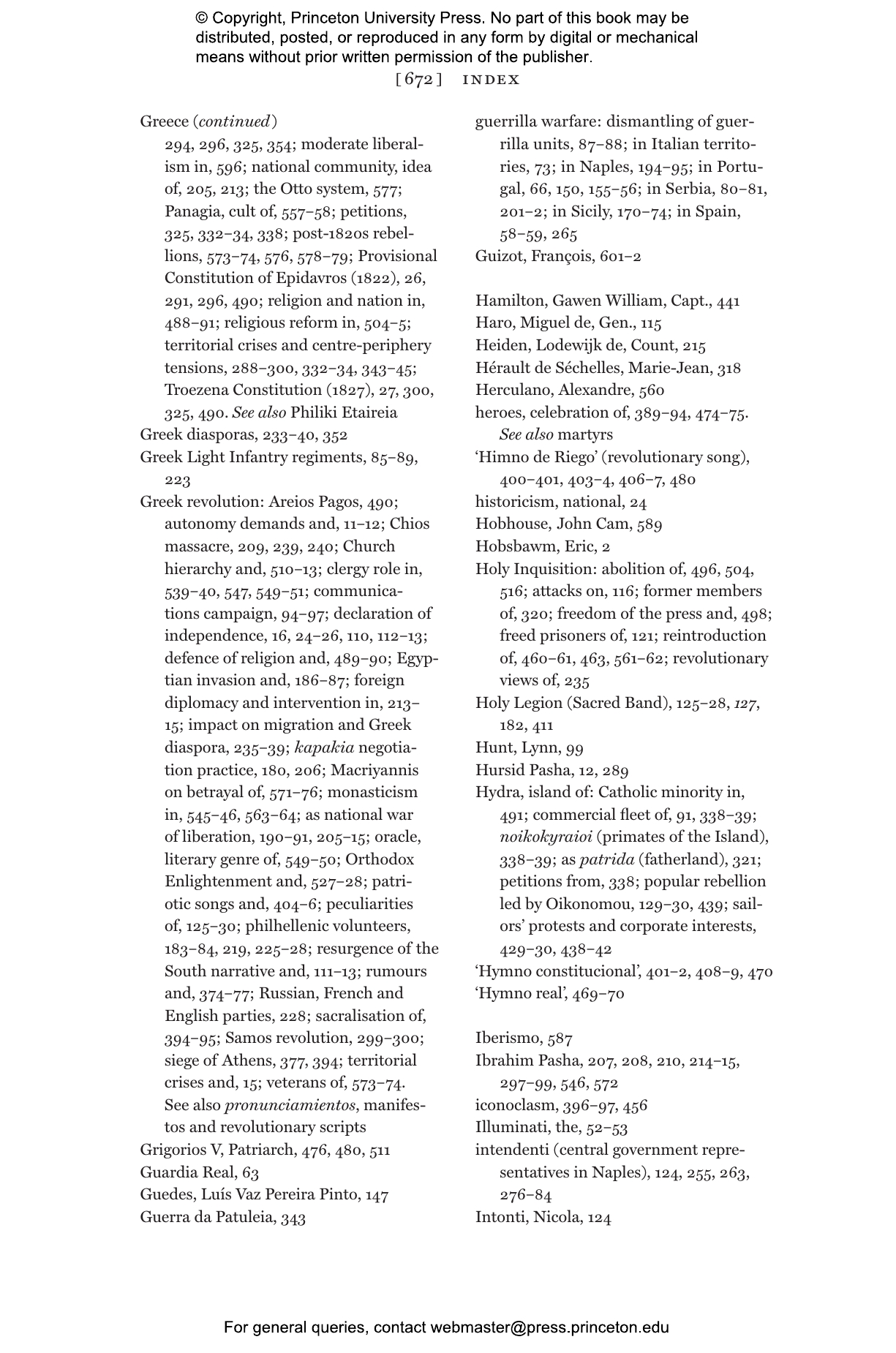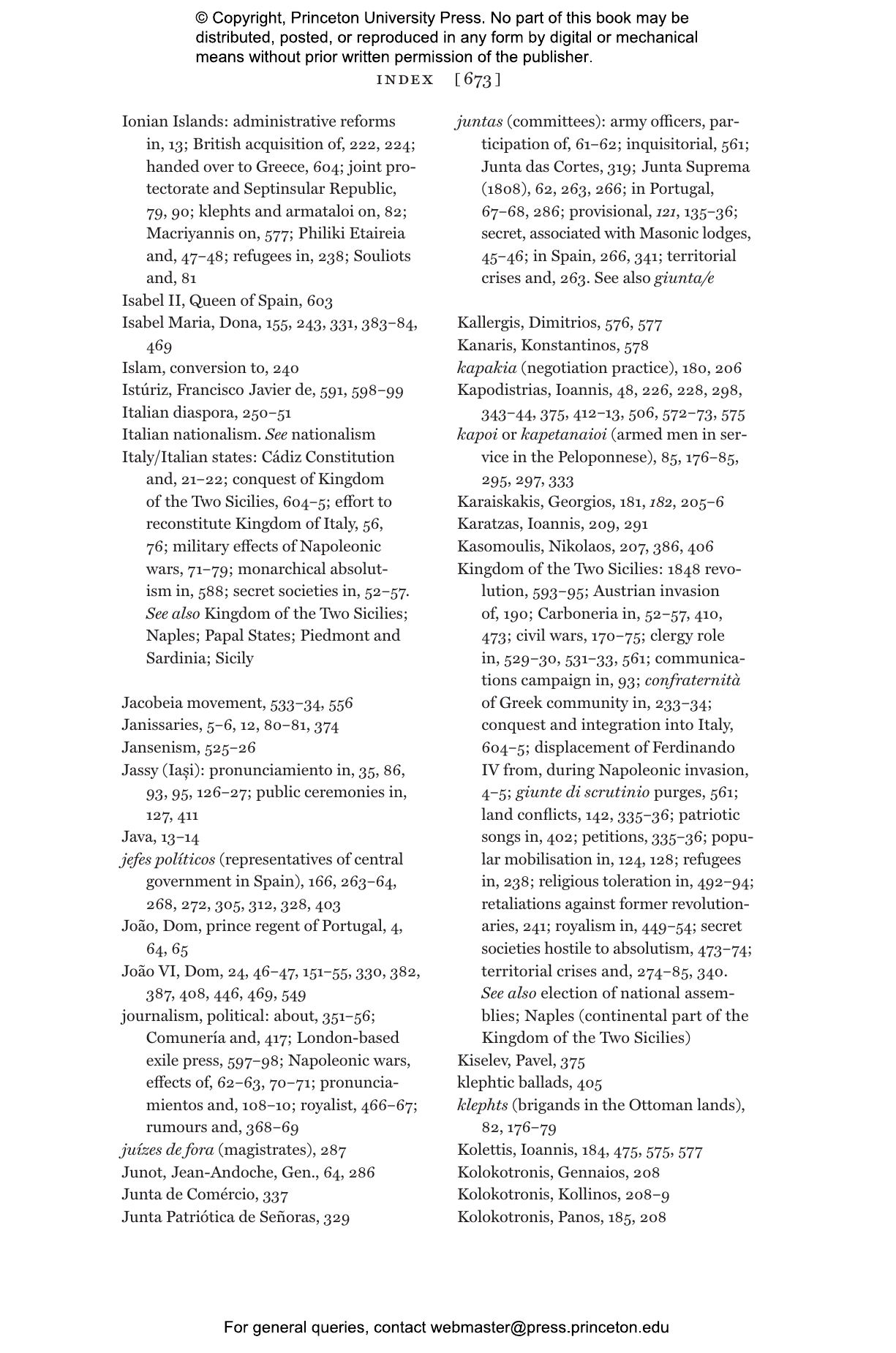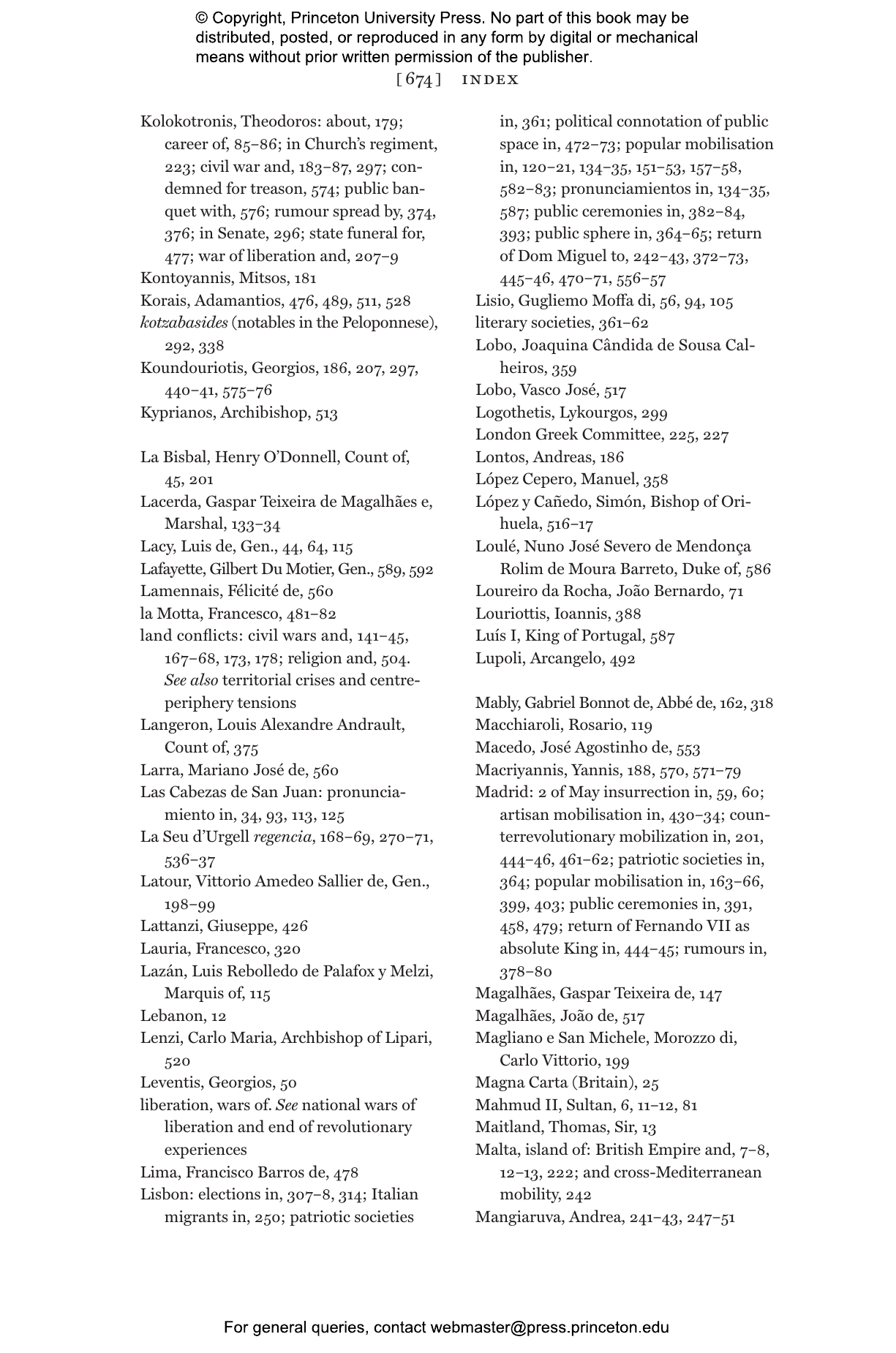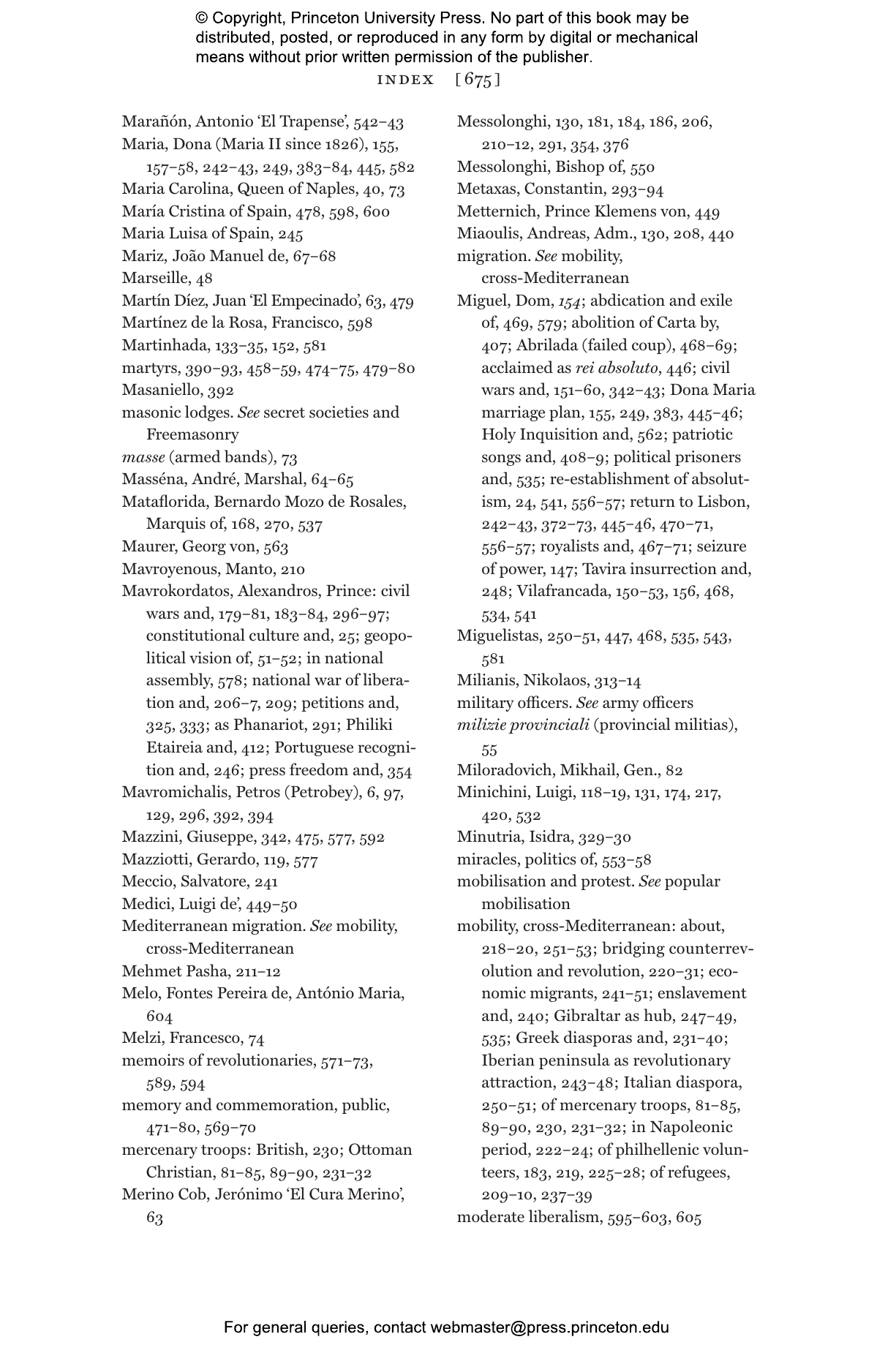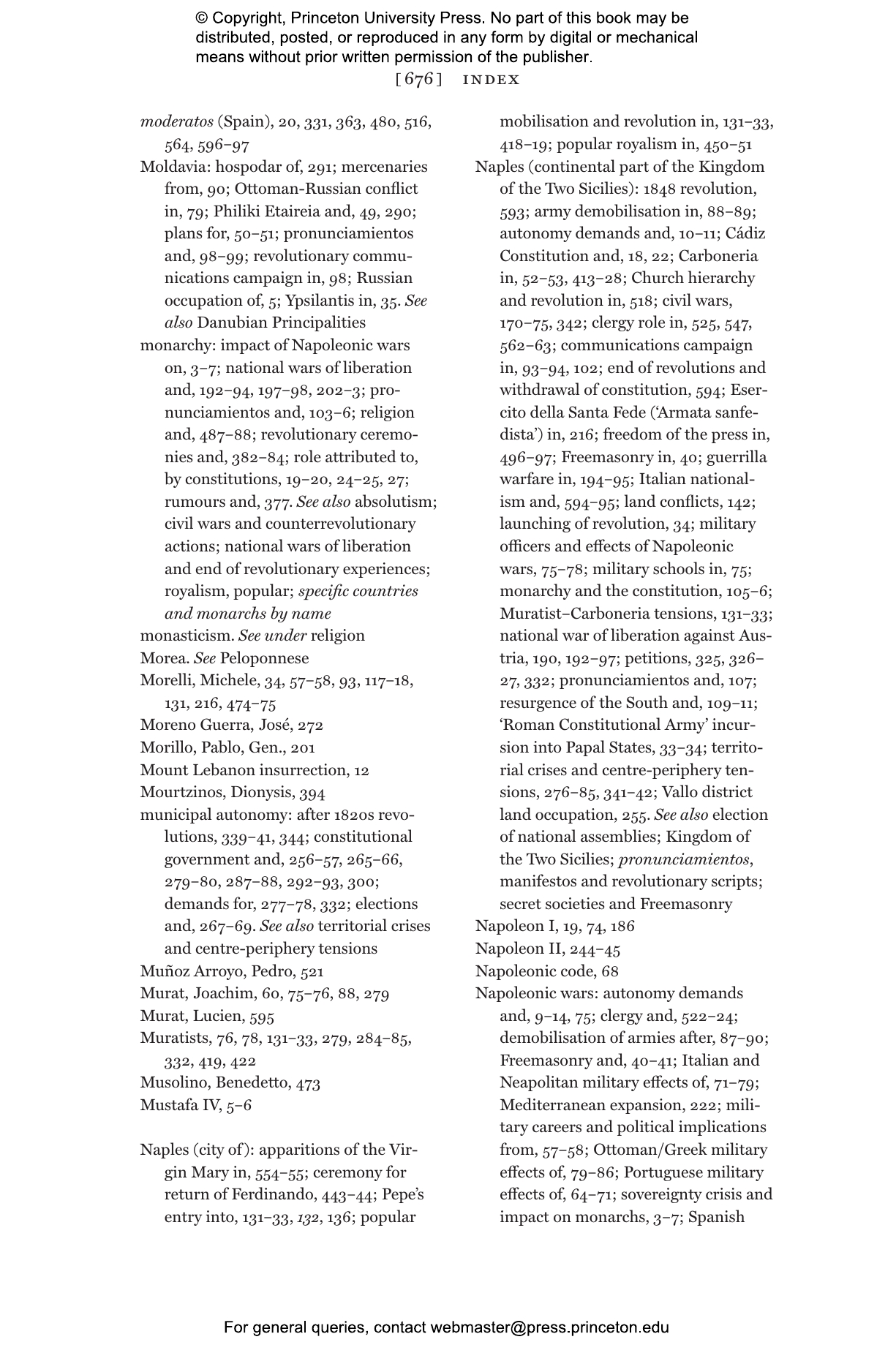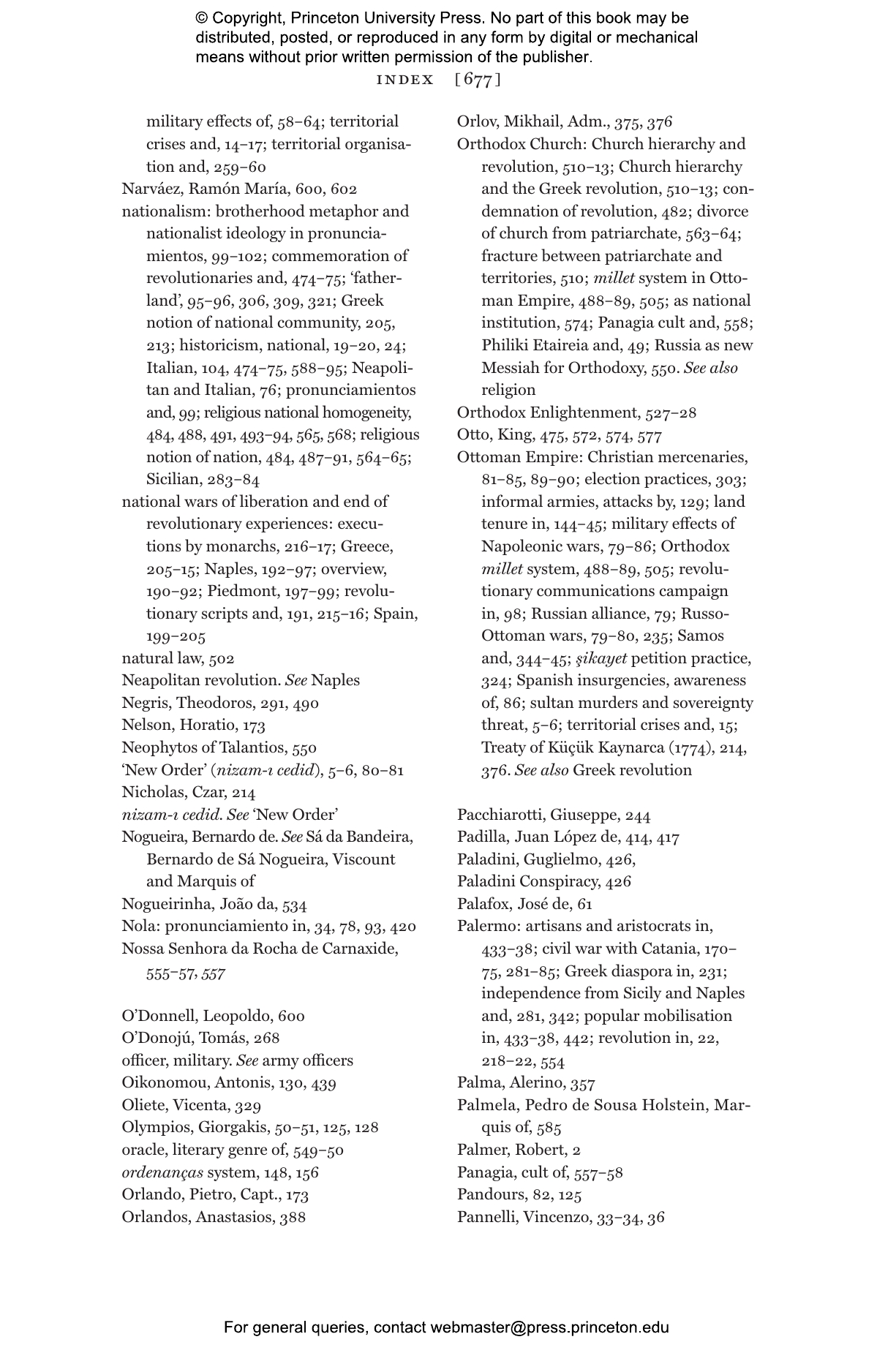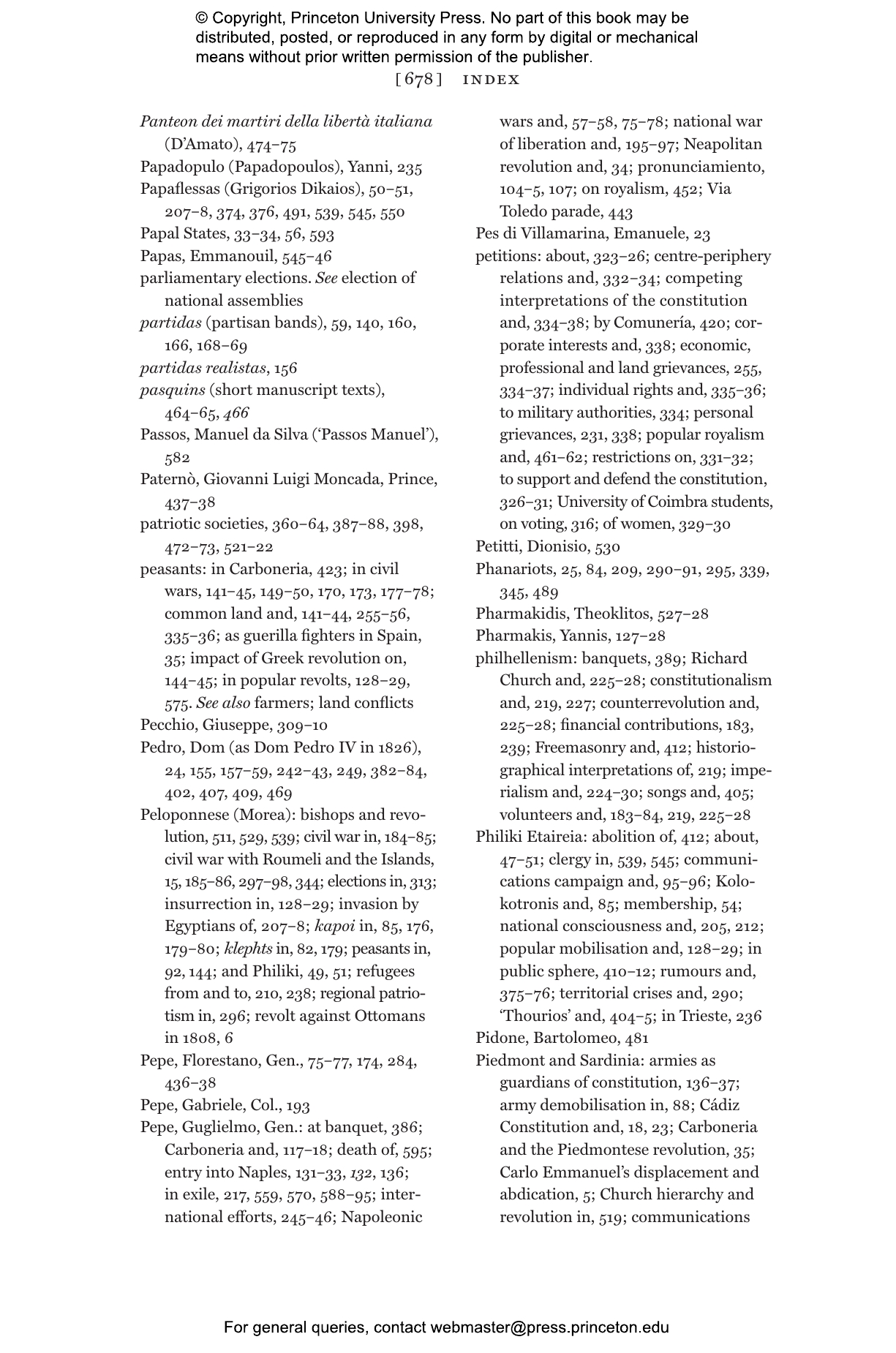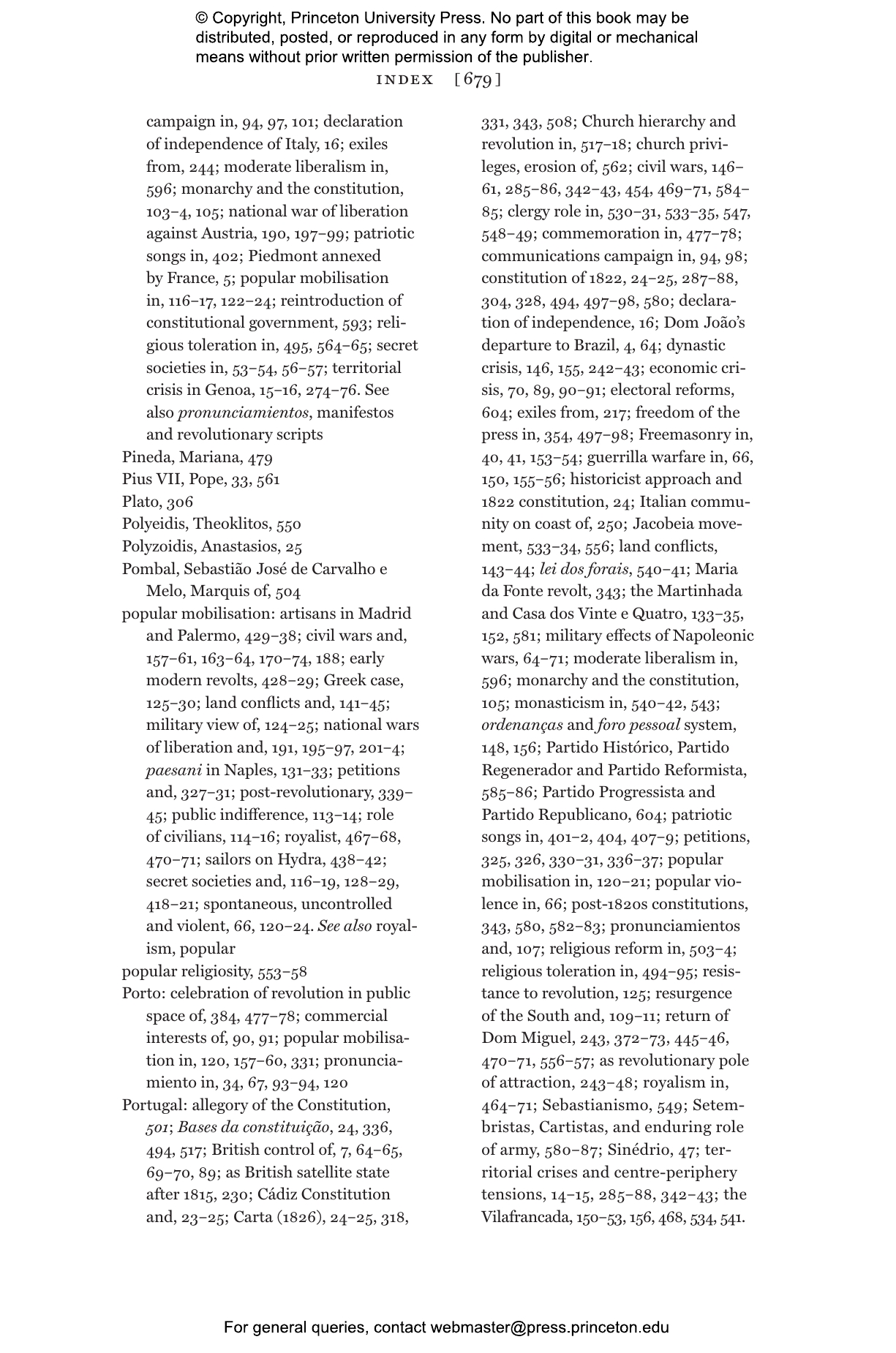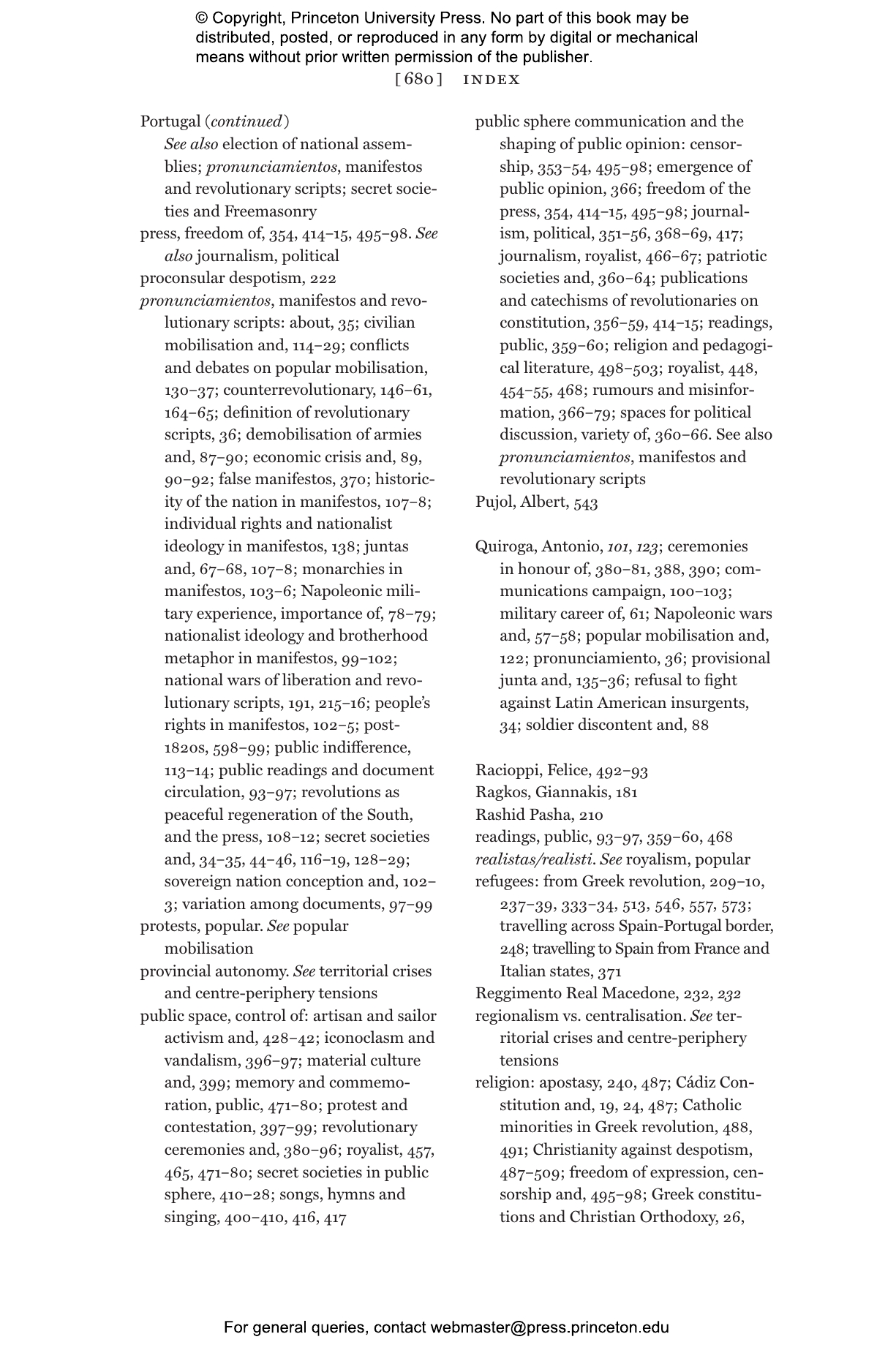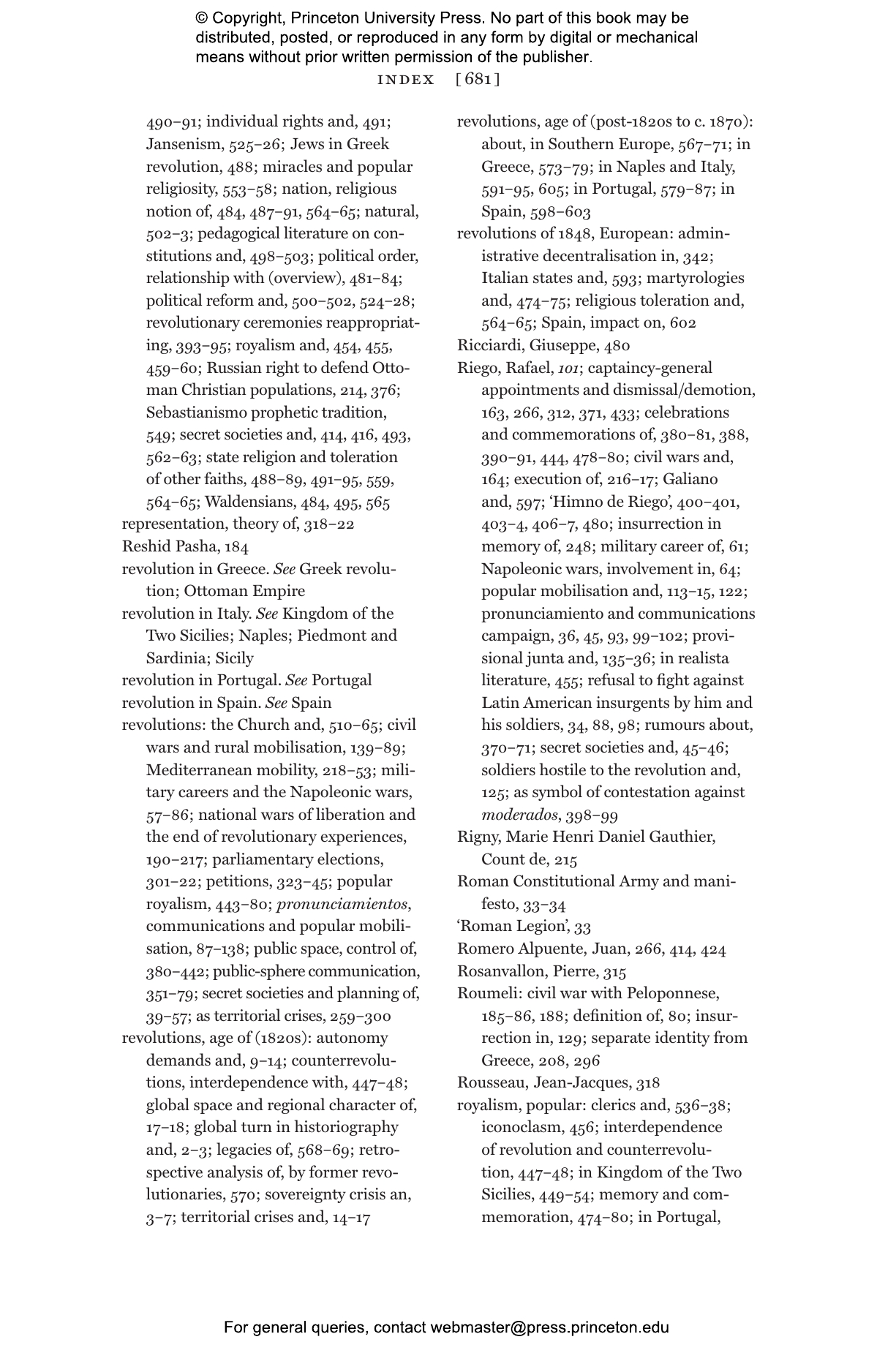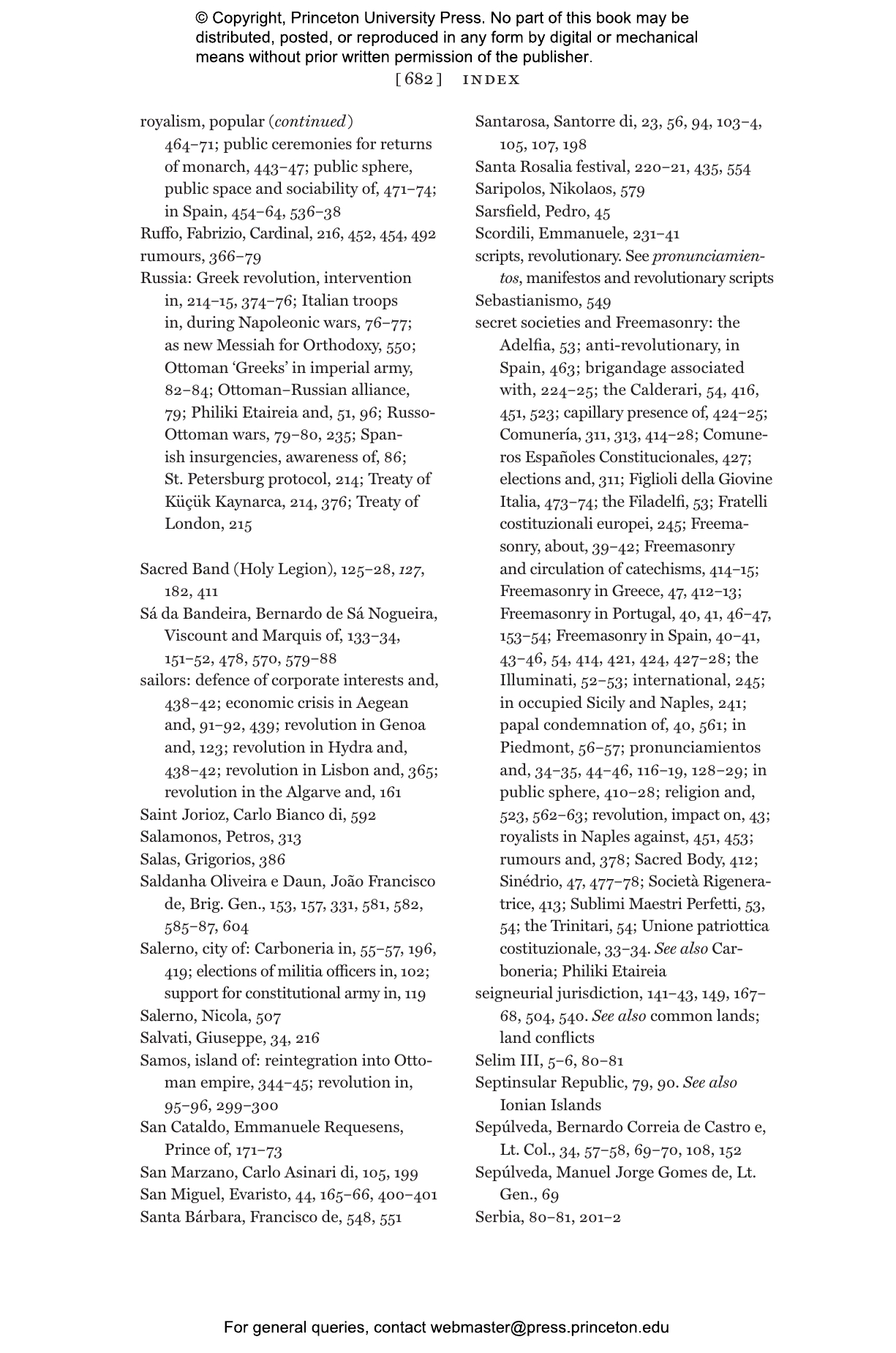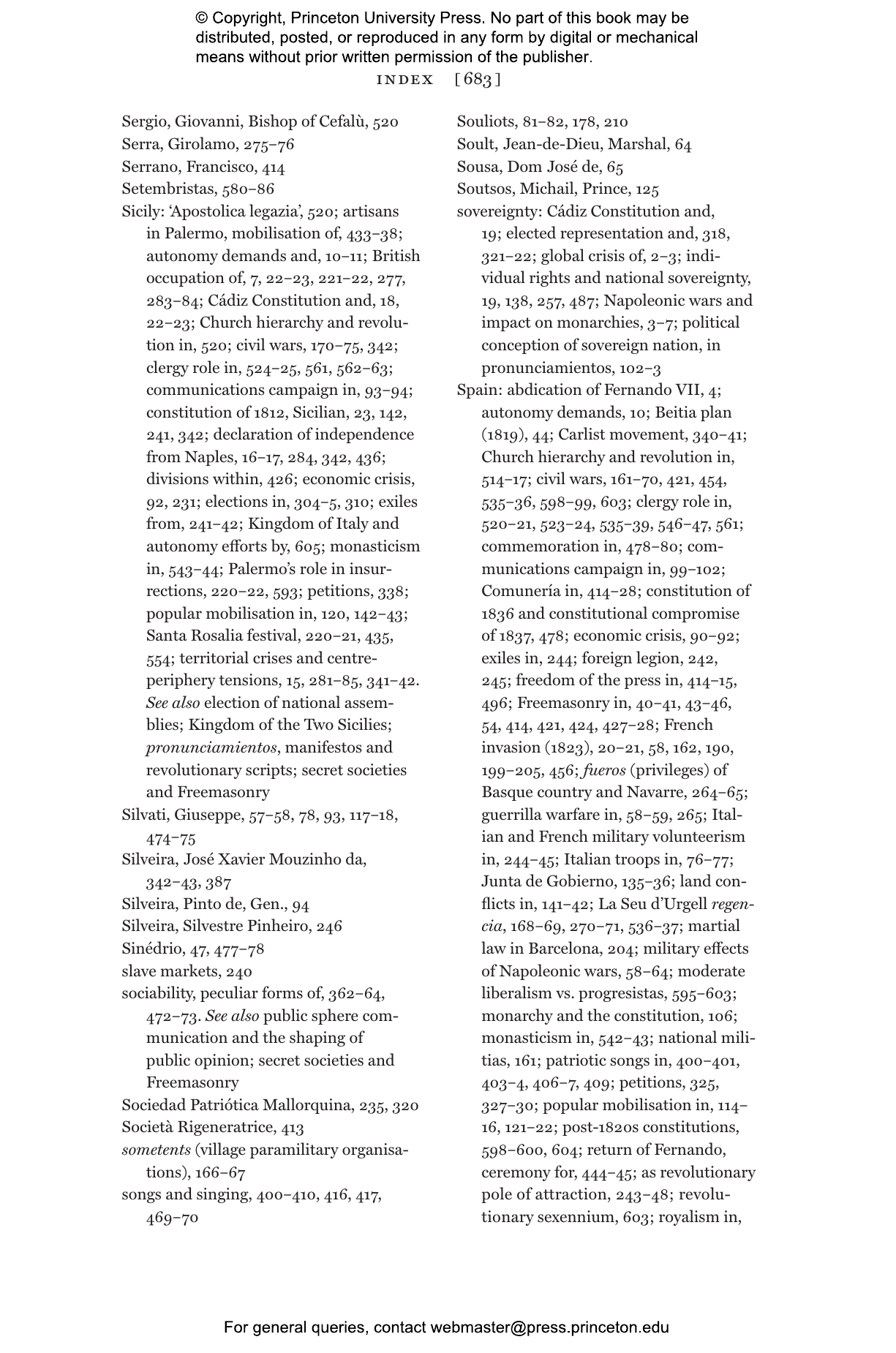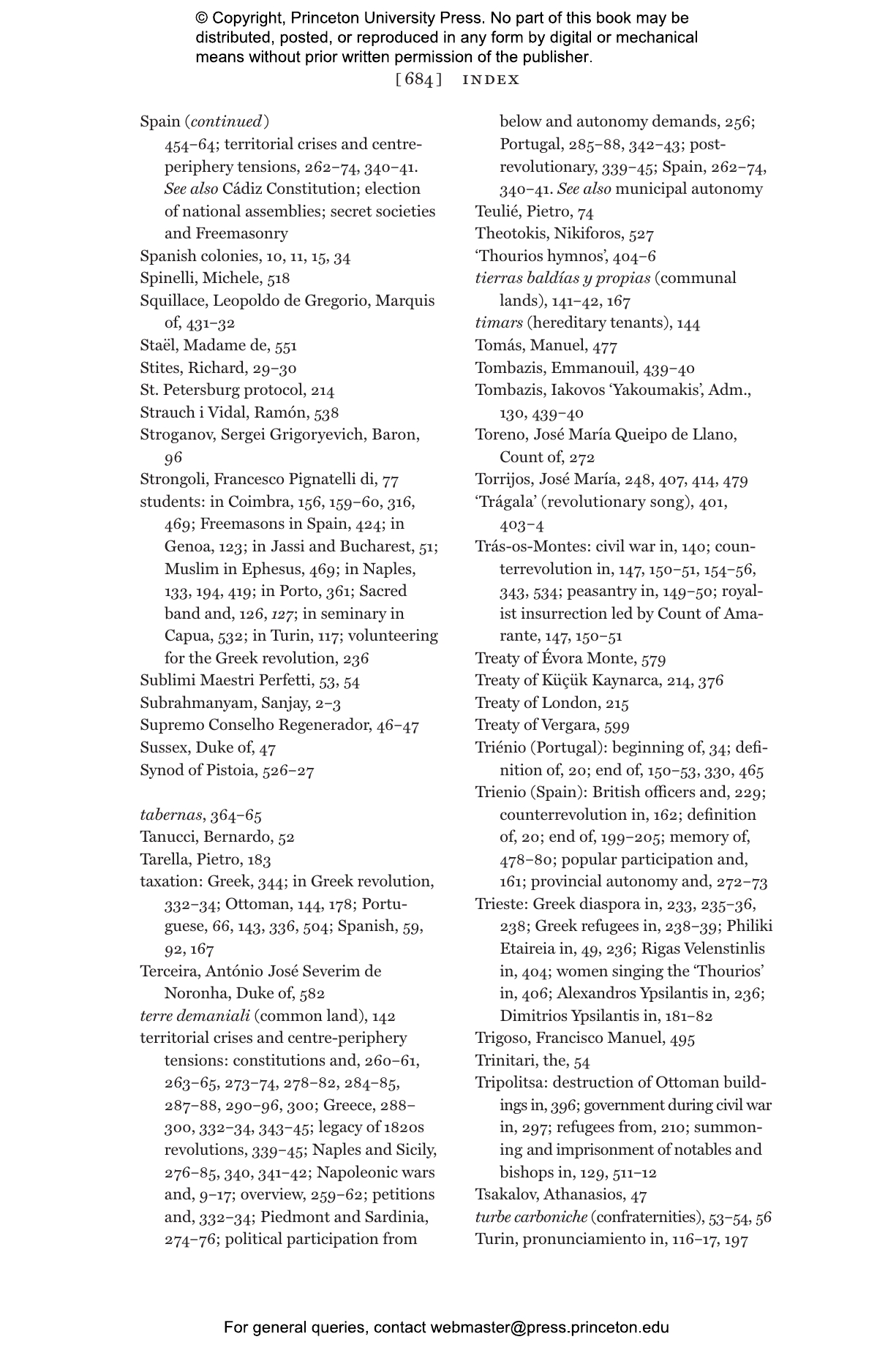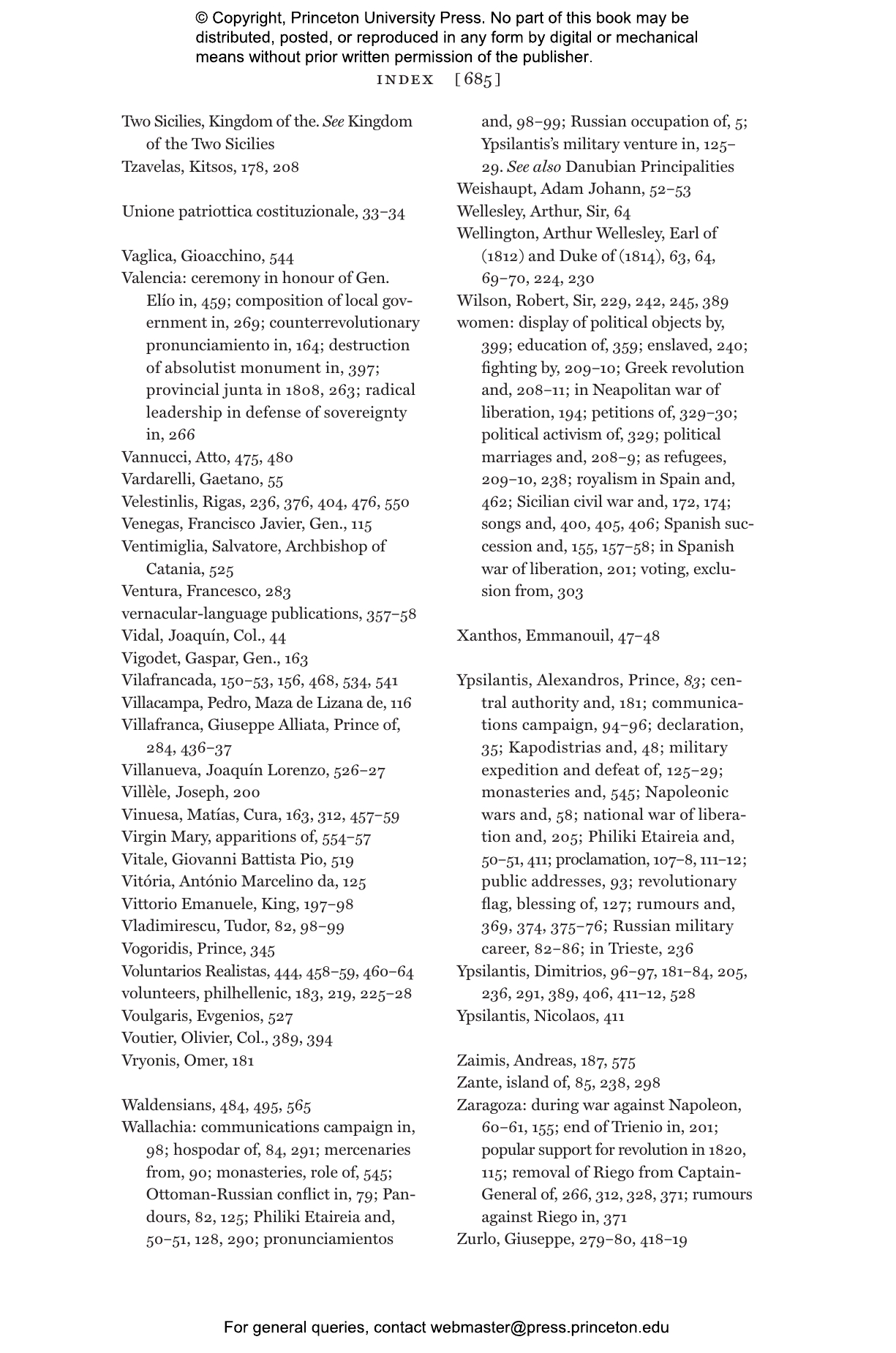After the turbulent years of the Napoleonic Wars and the Congress of Vienna’s attempt to guarantee peace and stability across Europe, a new revolutionary movement emerged in the southern peripheries of the continent. In this groundbreaking study, Maurizio Isabella examines the historical moment in the 1820s when a series of simultaneous uprisings took the quest for constitutional government to Portugal, Spain, the Italian peninsula, Sicily and Greece. Isabella places these events in a broader global revolutionary context and, decentering conventional narratives of the origins of political modernity, reveals the existence of an original popular constitutional culture in southern Europe.
Isabella looks at the role played by secret societies, elections, petitions, protests and the experience of war as well as the circulation of information and individuals across seas and borders in politicising new sectors of society. By studying the mobilisation of the army, the clergy, artisans, rural communities and urban populations in favour of or against the revolutions, he shows that the uprisings in the South—although their ultimate fate was determined by the intervention of more powerful foreign countries—enjoyed considerable popular support in ideologically divided societies and led to the introduction of constitutions. Isabella argues that these movements informed the political life of Portugal and Spain for many decades and helped to forge a long-lasting revolutionary tradition in the Italian peninsula. The liberalism that emerged as a popular political force across southern Europe, he contends, was distinct from French and British varieties.
Awards and Recognition
- Winner of the Fondazione Roma Sapienza Book Prize
- Longlisted for the Runciman Award, Anglo-Hellenic League
- Shortlisted for the Laura Shannon Prize, Nanovic Institute for European Studies
- Winner of the Giuseppe Galasso History Prize, Neapolitan History Society
"[A] transformational account."—Abigail Green, London Review of Books
"Isabella’s book resists sub-disciplinary pigeonholing. At a push, it might be described as a peculiarly richly-textured combination of social, political, intellectual, institutional and cultural history. It adds up to a genuinely new history of revolutionary cultures in post-Napoleonic Europe, and it is, in a word, brilliant."—Alex Middleton, The Critic
"[A] pathbreaking book."—Andrew Moravcsik, Foreign Affairs
"[A] very considerable achievement."—Roger Price, Intelligence and National Security
"An impressive book. . . . Exemplary of how revolutions and revolutionary culture should be studied. . . .[The] book will no doubt become a standard work for future research on the age of (counter)revolution."—Matthijs Lok, Austrian History Yearbook
"An ambitious, highly analytical study of revolutionary movements in Southern Europe during the early 19th century."—Choice Reviews
"With magisterial fairness, Isabella assesses the ultimate failure and legacy of these revolutions, showing how they were a vital checkpoint on the road to defining representative government and our democratic practices."—Ambrogio A. Caiani, Shepherd.com
"[Isabella] deserves praise and recognition for a new standard work in Southern European historiography. Highly readable, well composed and repeatedly describing relatively unknown local case studies, the study proves to be a treasure trove for anyone who wishes to work on the age of revolutions in the Southern European-Mediterranean region in the future. . . .Thanks to Maurizio Isabella's seminal work on the 1820s revolutions, Southern Europe is definitely back on the mental map of 19th-century historians."—Jens Späth, H-Soz-Kult
"With an elegant narrative, Isabella presents a brilliant and comprehensive lesson in global history, which, through extensive research, combines general frameworks, detailed closeups and biographical profiles and embraces and compares the various contexts that intersect among them. . . .An outstanding fresco of nineteenth-century Mediterranean Europe through the lens of the 1820s revolutions – a transformative political period."—Elena Bacchin, Modern Italy
"Southern Europe in the Age of Revolutions makes an important contribution to scholarly understandings of the Age of Revolutions"—Evan Rothera, World History Encyclopedia
“Brilliantly researched, and seamlessly comparative, this sweeping and impressive book will bring the revolutions of southern Europe in the early 1820s back to the attention of historians.”—Mark Mazower, author of The Greek Revolution: 1821 and the Making of Modern Europe
“This masterly and wonderfully researched and detailed history sets out a powerful argument for the distinctiveness and importance of the multiple revolutions in southern Europe in the 1820s. Simultaneously, Maurizio Isabella shows how developments in Greece, Portugal, Spain and Italy in this era, were closely and crucially linked to political ideas and mobilisation elsewhere, not just in Revolutionary and Napoleonic France, but also in Britain and the Ottoman world. The result is a different, wider and more nuanced vision of an age of revolution.”—Linda Colley, author of The Gun, the Ship and the Pen: Warfare, Constitutions and the Making of the Modern World
“The 1820s have the reputation of being the most boring decade of the nineteenth century, especially in a Europe recovering from Napoleonic excesses. Nothing could be more wrong. Maurizio Isabella’s magisterial book reveals a world of revolutions, constitution-making and imperialist interventions encompassing the entire space from the Atlantic to the Aegean Sea.”—Jürgen Osterhammel, author of The Transformation of the World: A Global History of the Nineteenth Century
“It is all too common to describe a book as ‘groundbreaking’ or a ‘tour de force.’ In this case, however, such terms of approbation (even adulation) are well deserved. Isabella has written a book of genuine significance and obvious originality, a truly sui generis study of the long-neglected southern European revolutions of the 1820s. The scope of the work, its staggering display of erudition and mastery of distinct historiographical traditions are striking. Sweeping yet meticulous, accessible yet erudite, Isabella has produced a major book.”—Gabe Paquette, University of Oregon
“This long-awaited book offers a seminal account of southern Europe’s entry into the new constitutional order in the early nineteenth century. Covering half a dozen countries in the Mediterranean area, its astonishing transnational scope—based on a wide variety of textual sources produced in a variety of languages—is unusual in the current academic landscape and provides readers with up-to-date information and original and highly innovative interpretive approaches.”—Javier Fernández-Sebastián, University of the Basque Country
